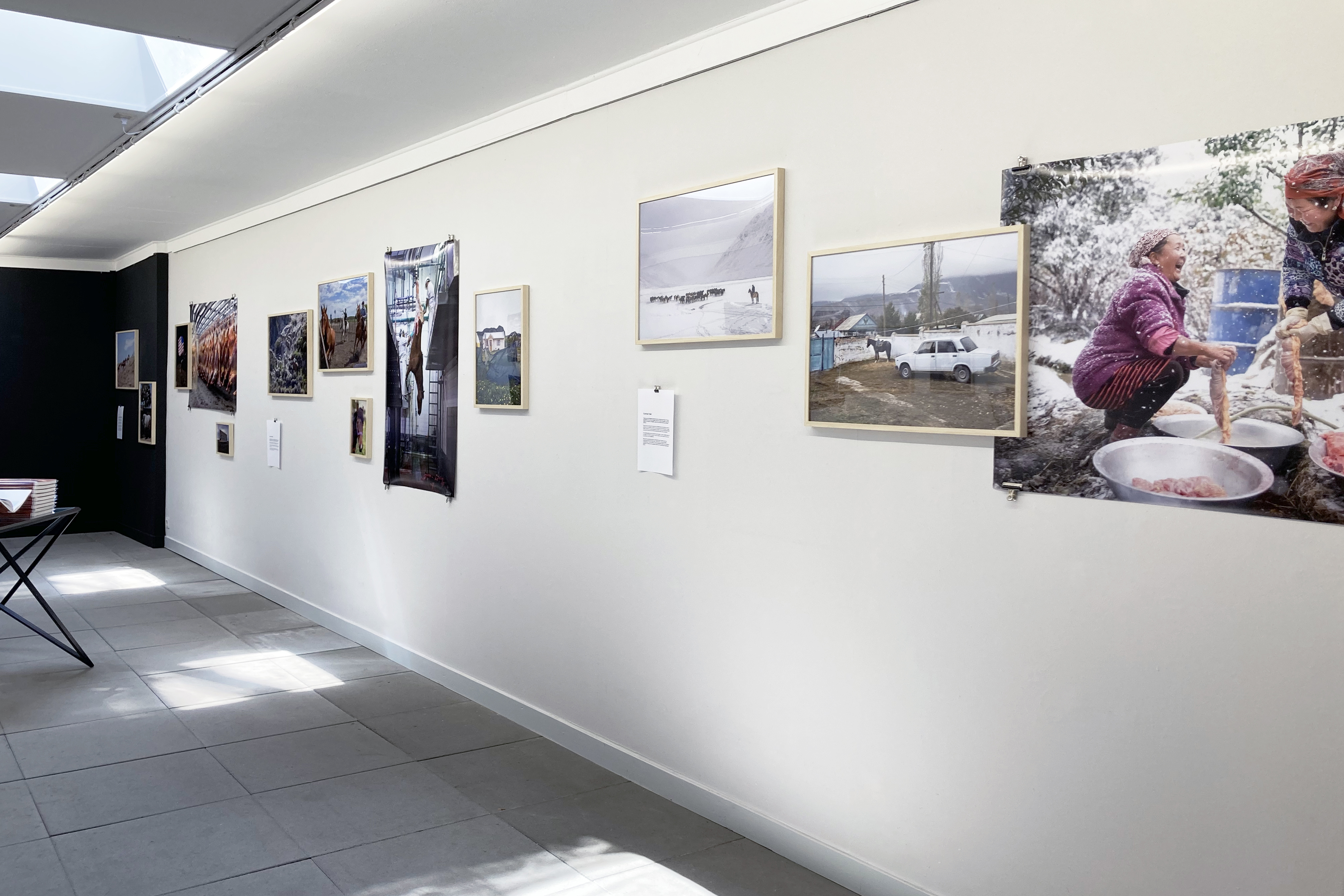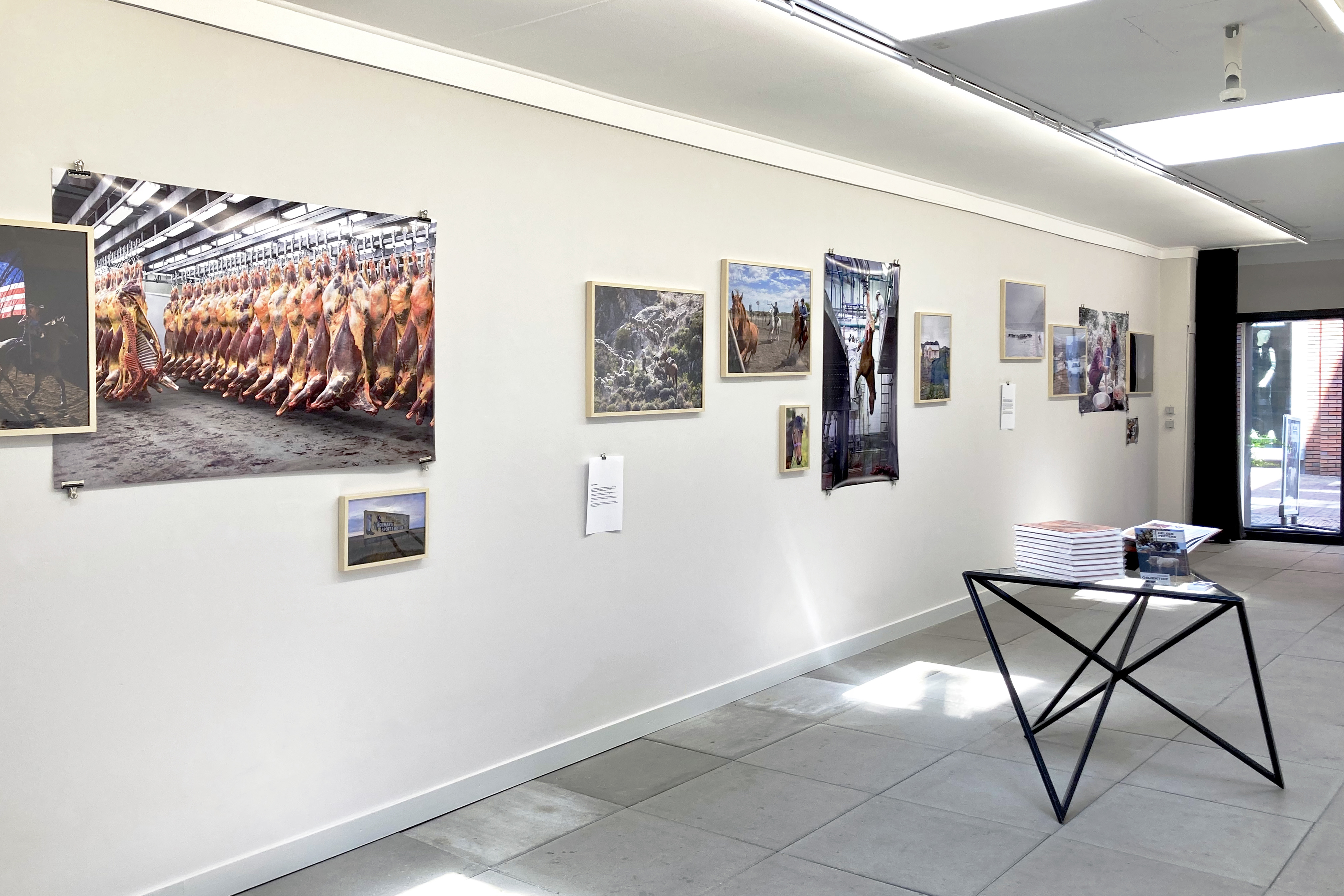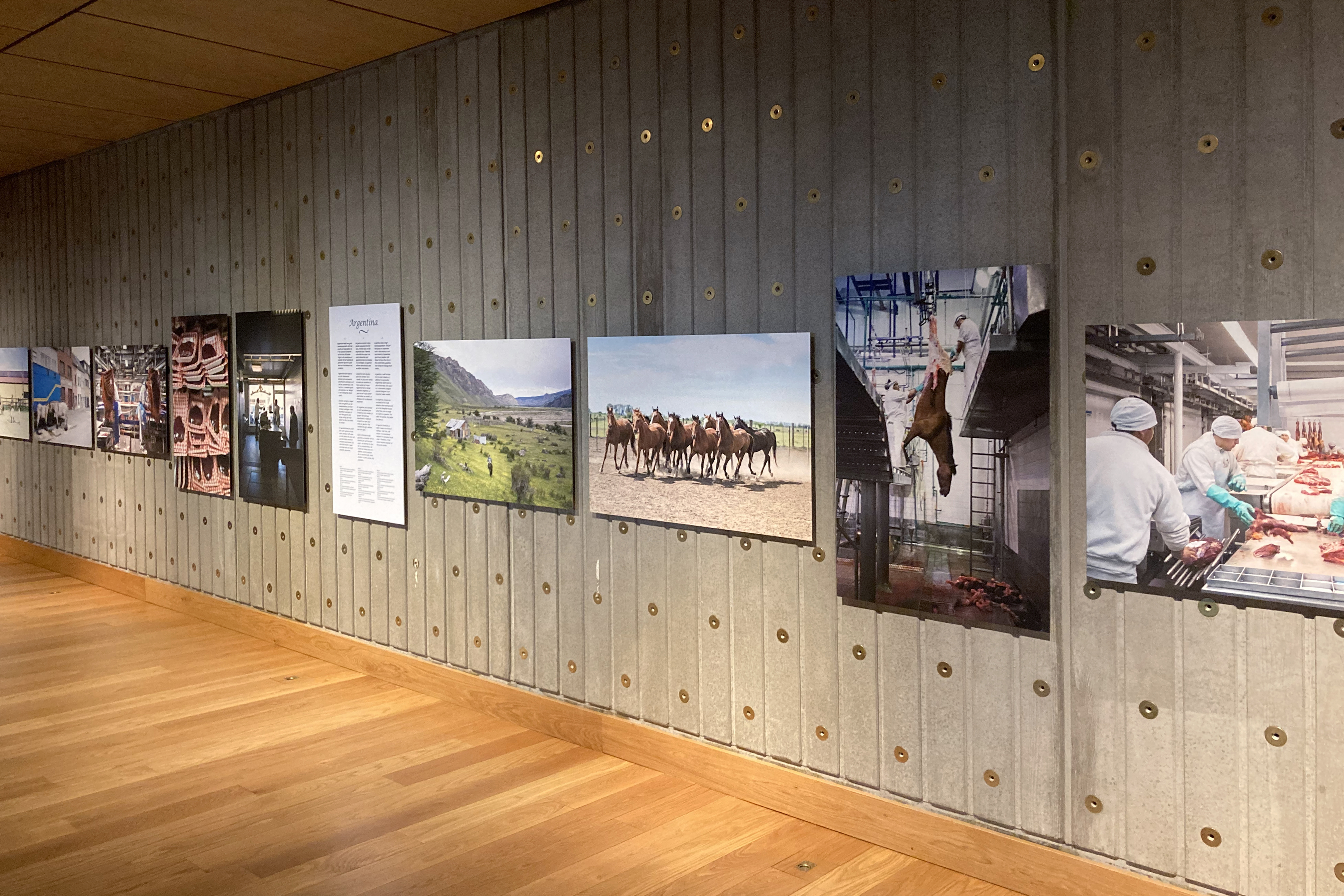H O R S E
introduction to the work
“A horse! A horse! My kingdom for a horse”, William Shakespeare had the British King Richard III cry out on the battlefield. A Bedouin legend has it that Allah took a handful of a south wind, gave it his breat and created the horse, “that will fly without wings and conquer without sword.” Over time the horse has been generously described by poets and writers.
Horses made a vital contribution to the history of humanity; as beast of burden, for waging wars as a means of transport and on the farm. The status of the animal has changed since the industrial revolution. With the mechanization of agriculture and the entry of the car, the horse lost its practical function. It became a companion animal for recreation, sports and therapy. A less documented part of this history is the horse that serves as food.
In 1948 the grandfather of Heleen Peeters (BE) began a business in what many now consider to be taboo: horse meat. At that time, people were poor, recovering from the struggles of World War II, and horse meat, being a high quality product for an affordable price, was in high demand. But now, 70 years later, the horse meat industry is falling into decline.
Starting at the family business, Peeters explored horse (meat) culture in Belgium, France, Italy, Poland, Argentina, Uruguay, Kyrgyzstan, the United States and Canada. Why is horse meat becoming less popular? What happens to horses if they are no longer eaten? How do we relate to animals in the first place And what about the need to cut back on our meat consumption?
images


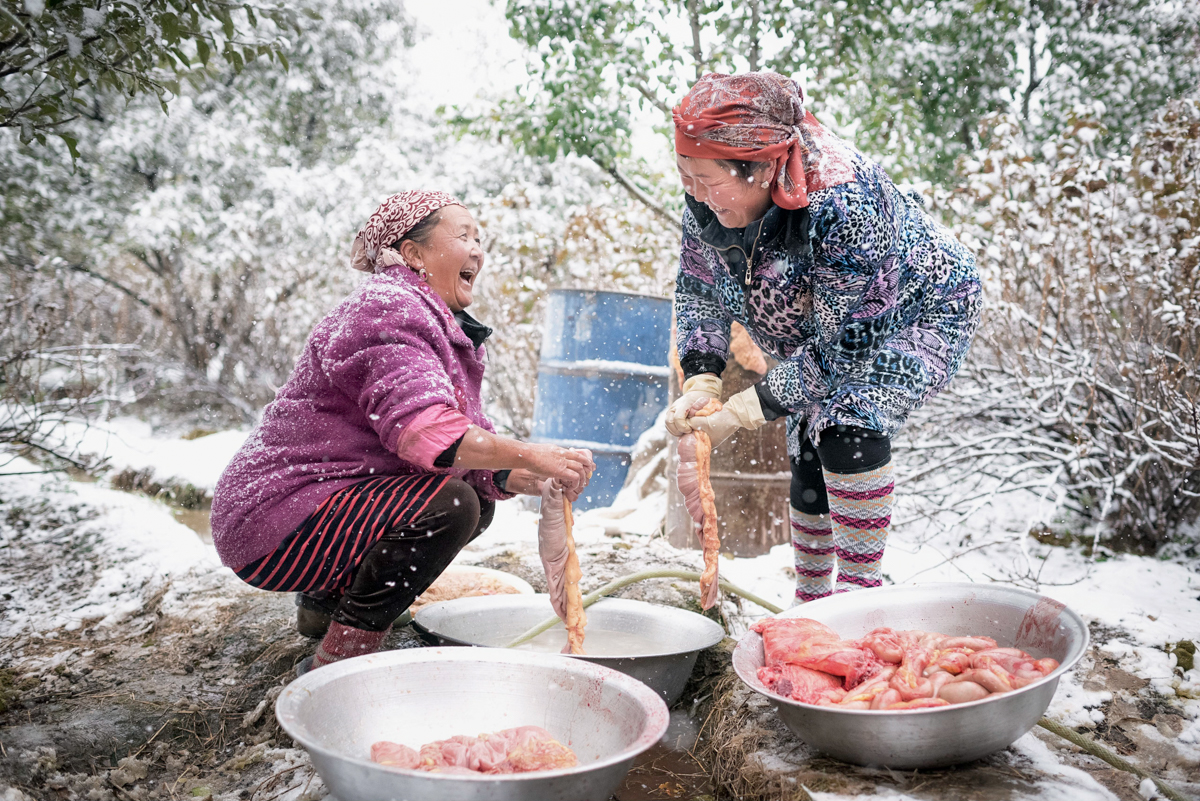

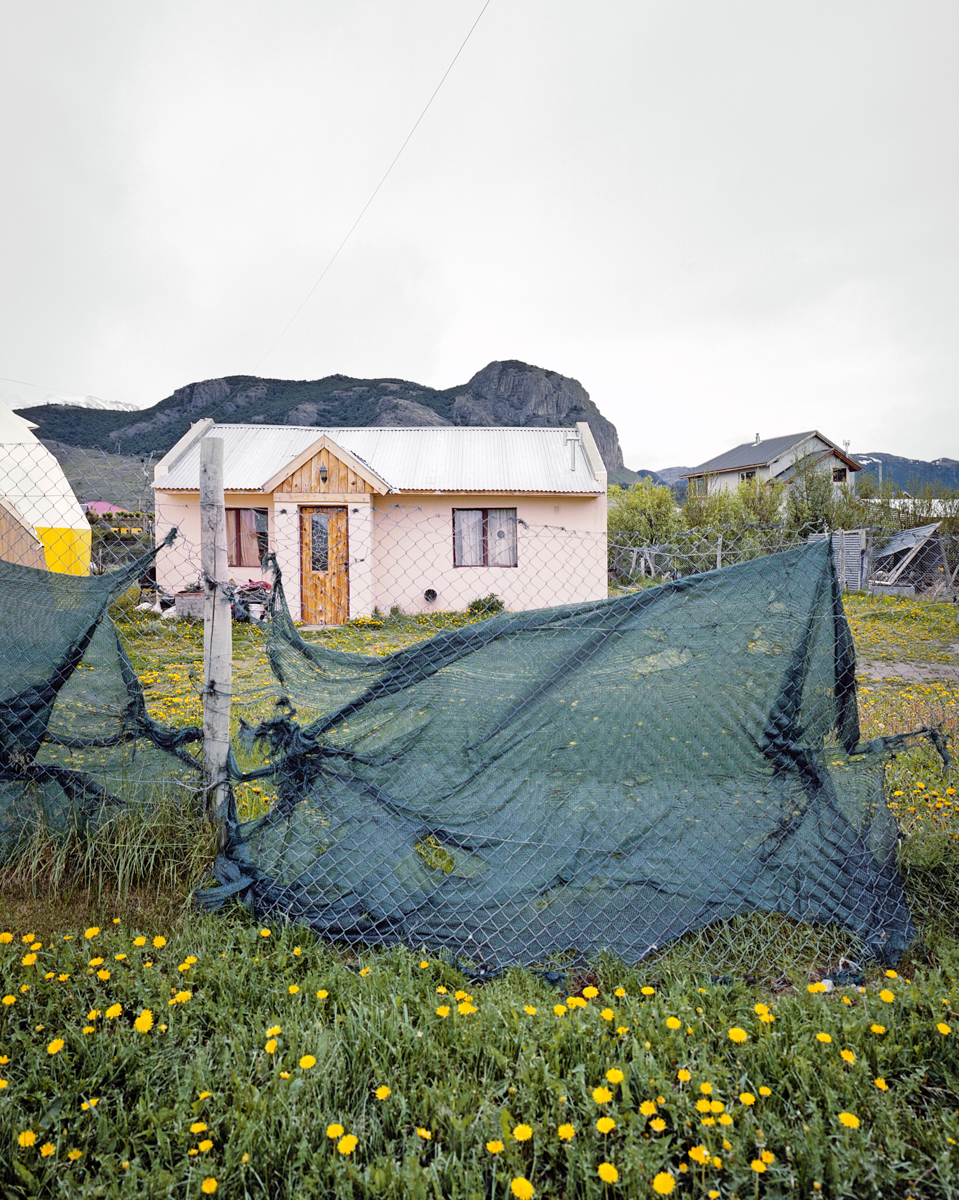
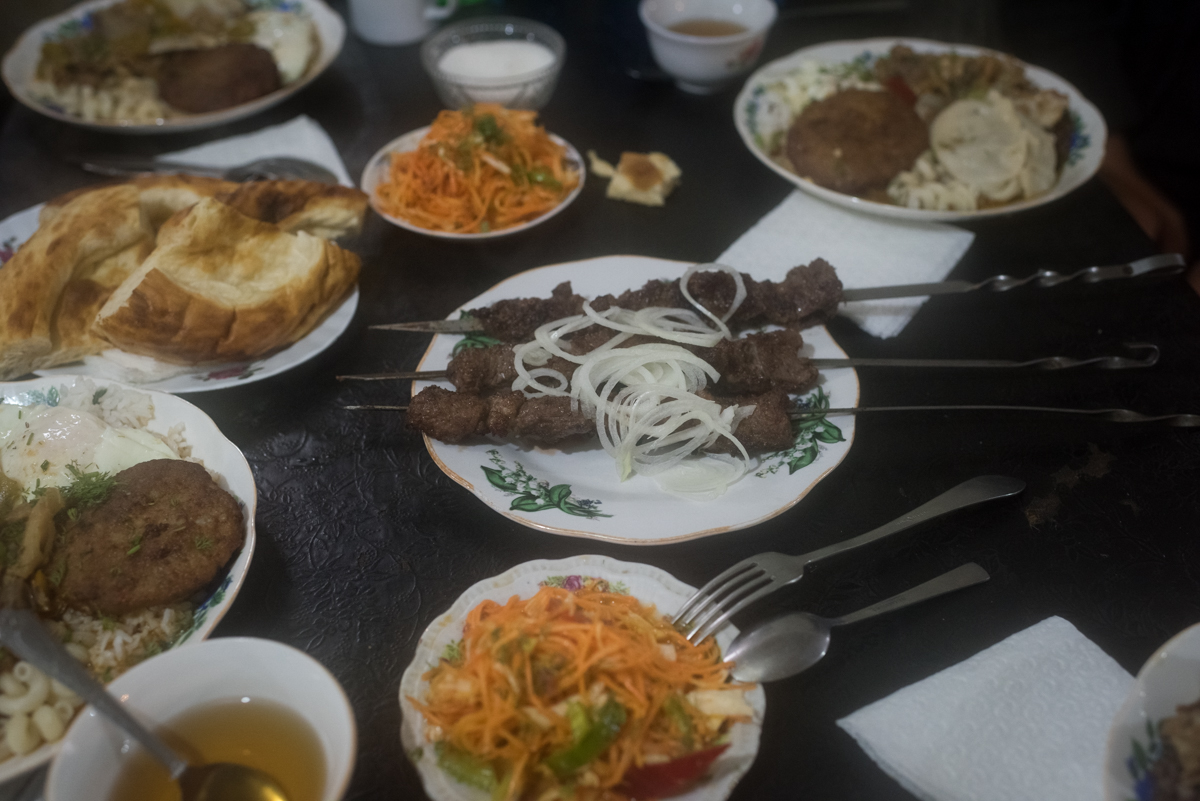


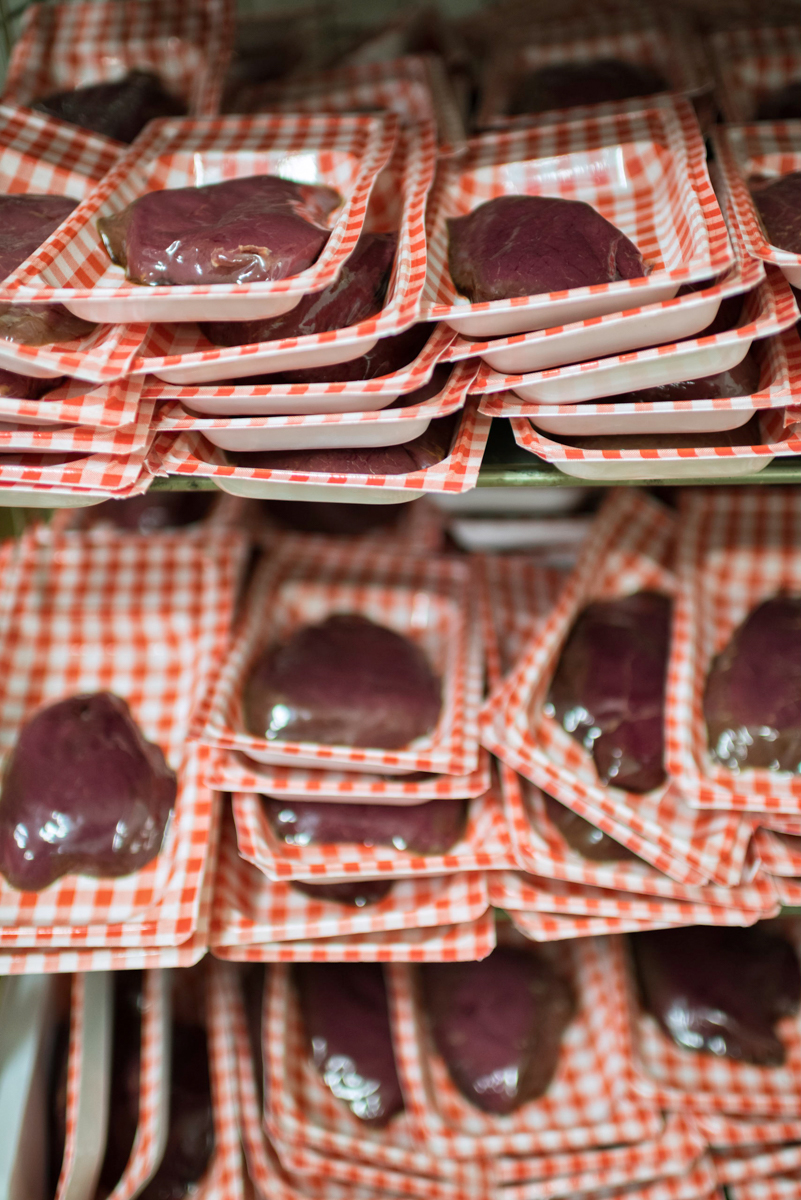
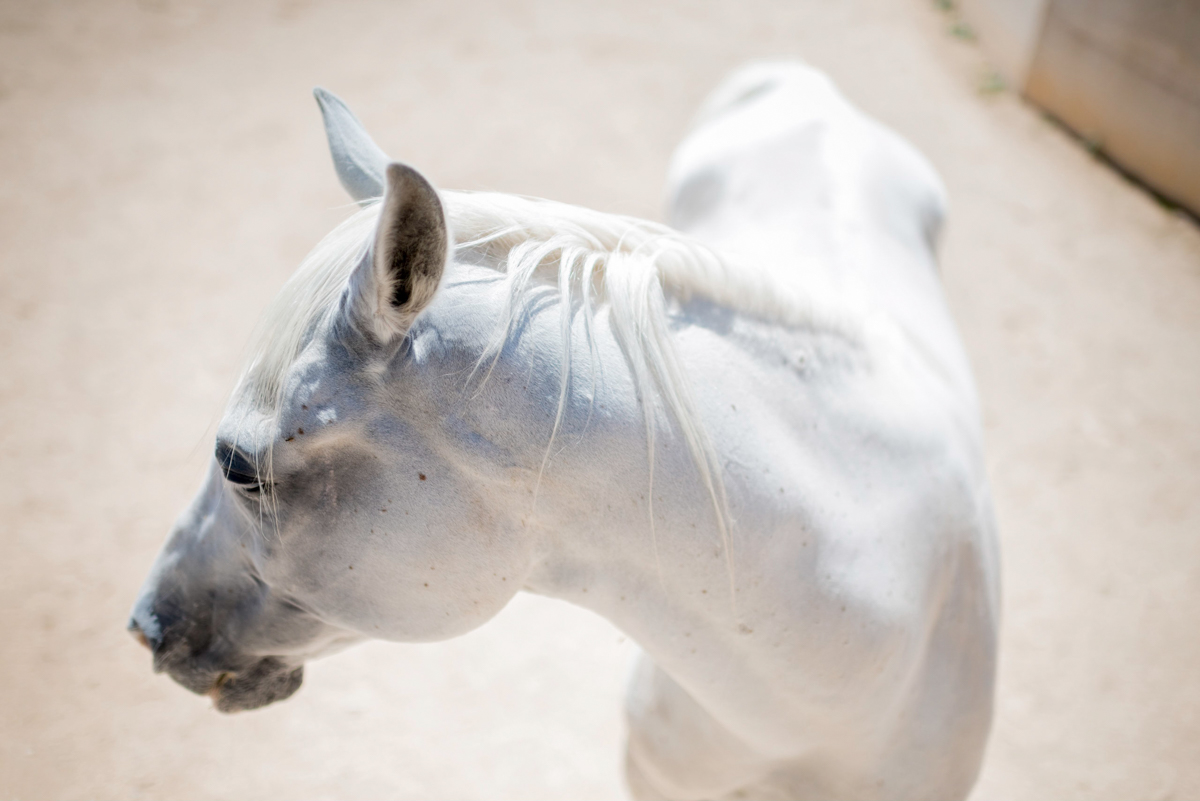
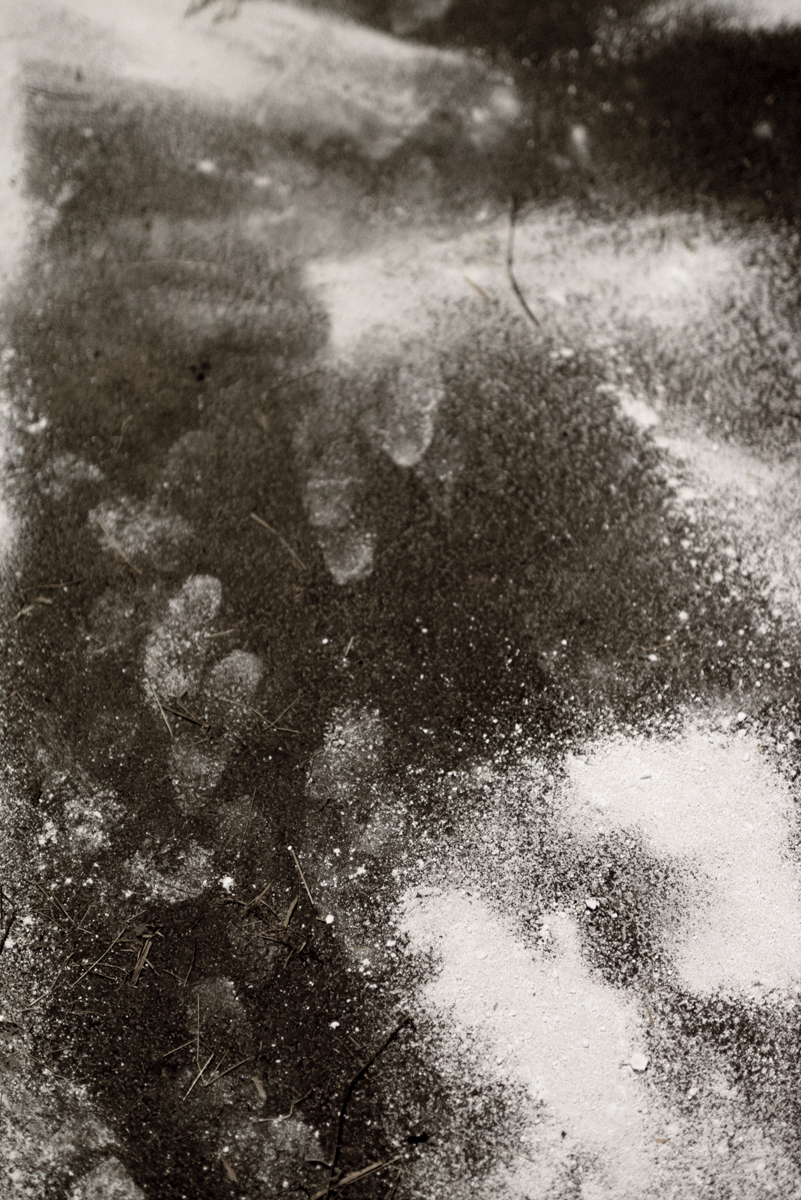
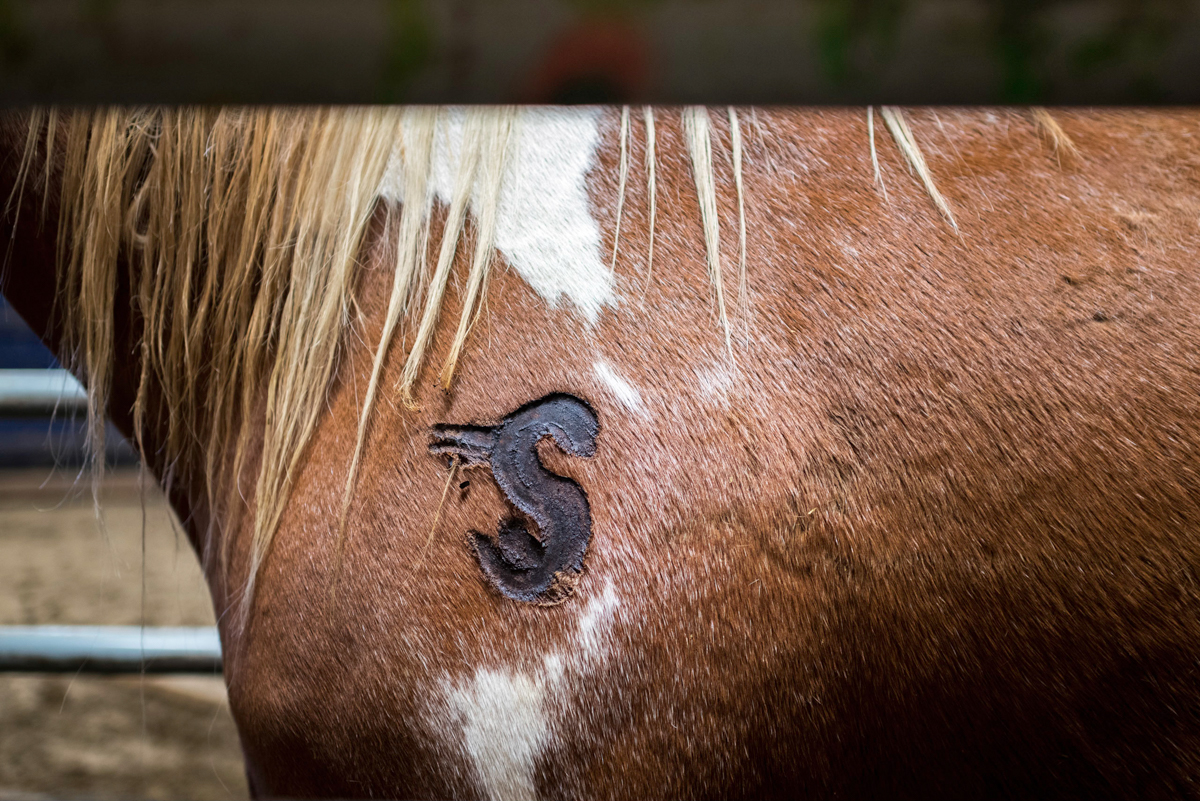

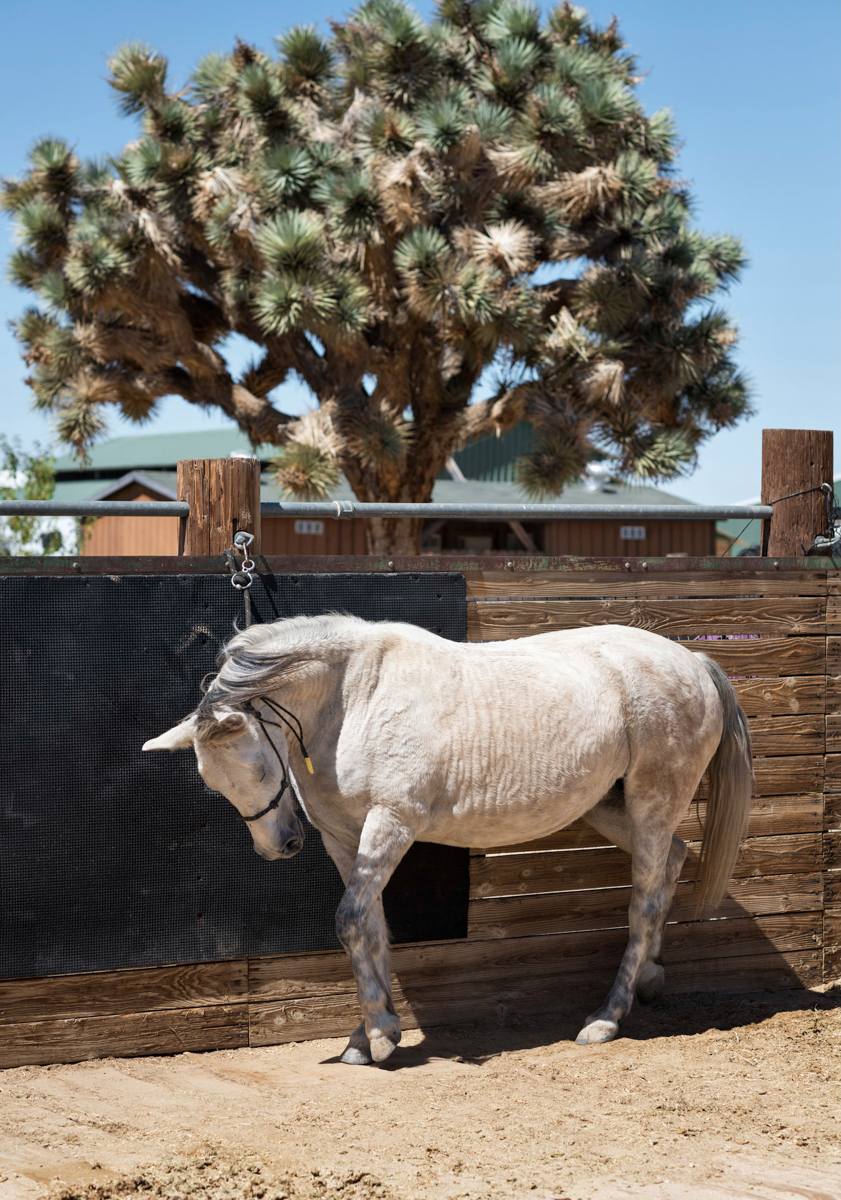
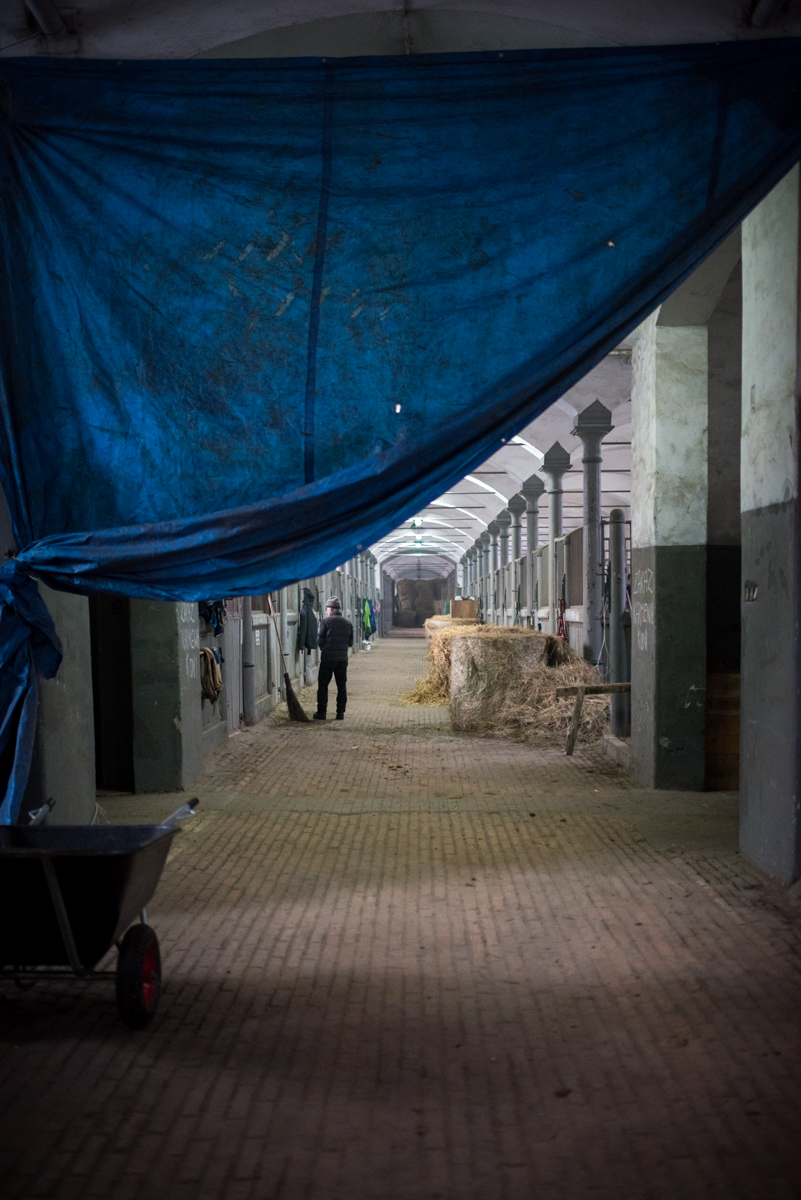
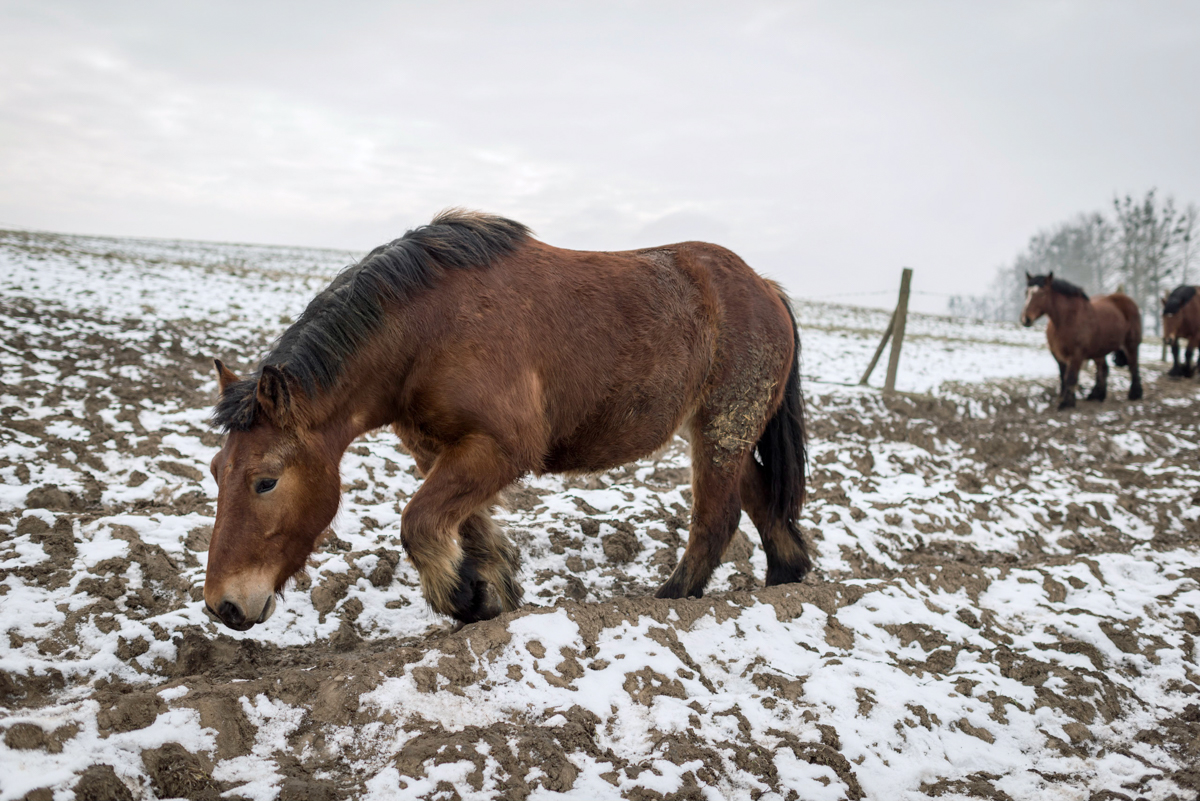
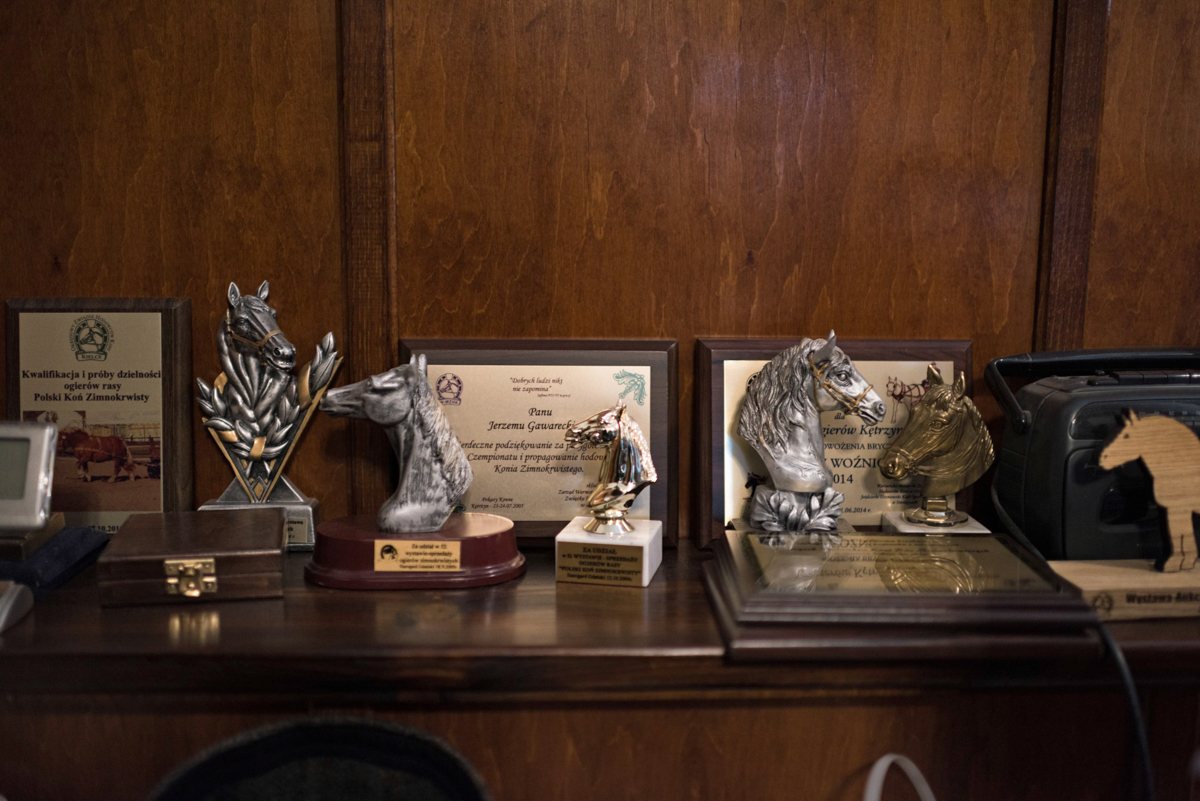
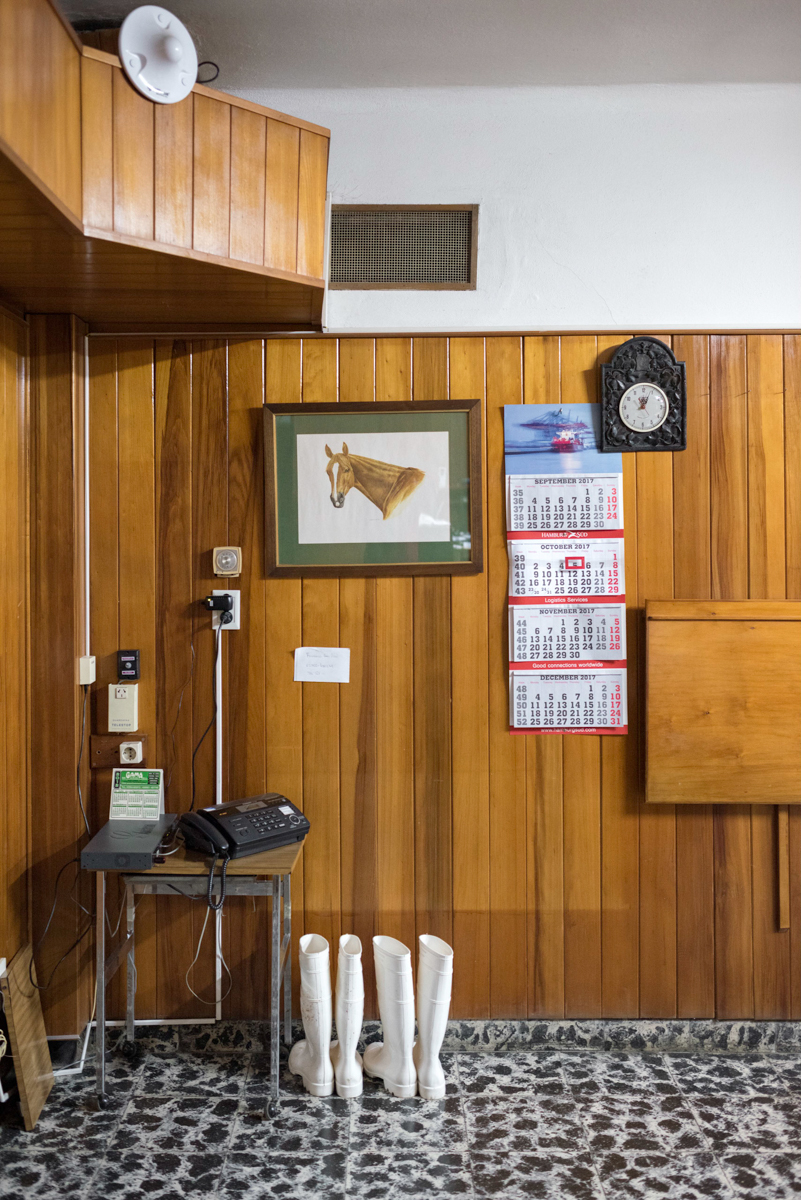
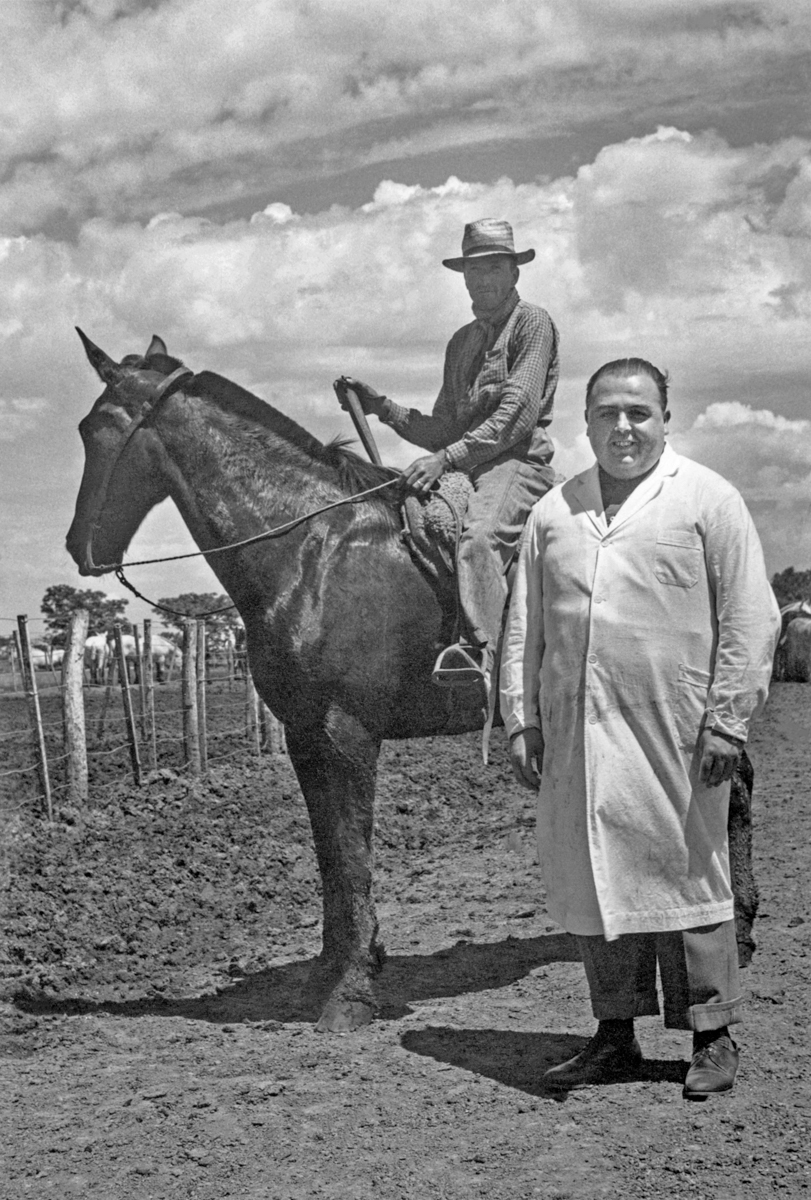



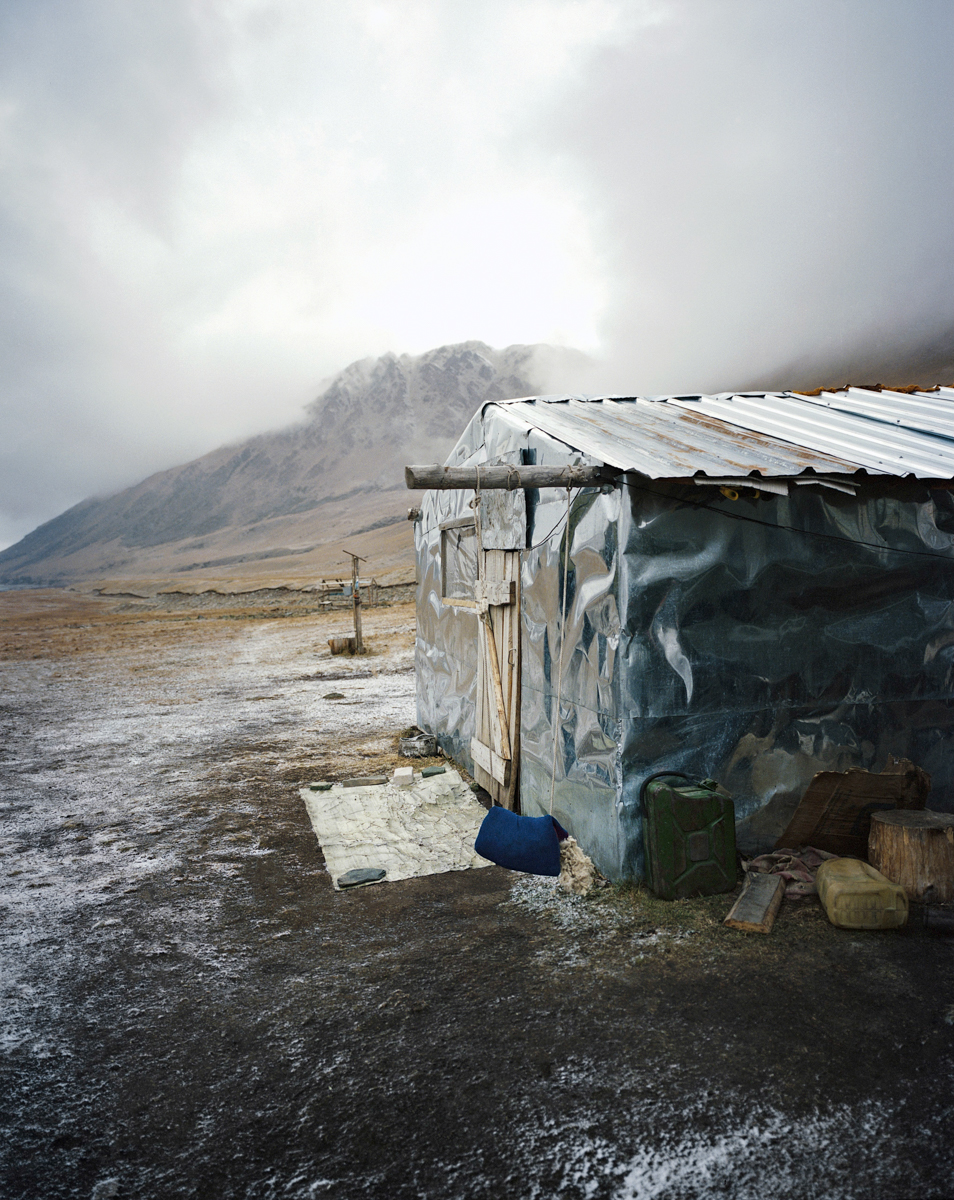
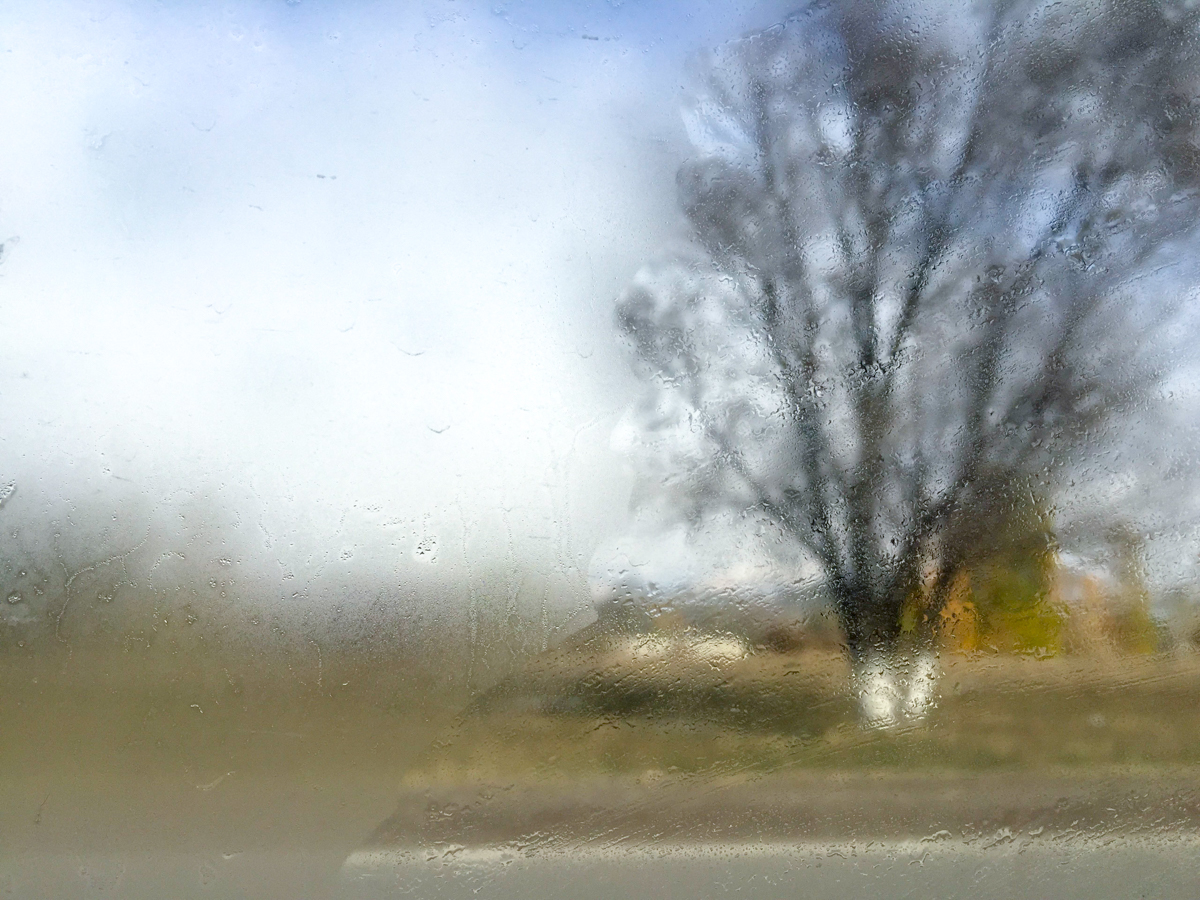
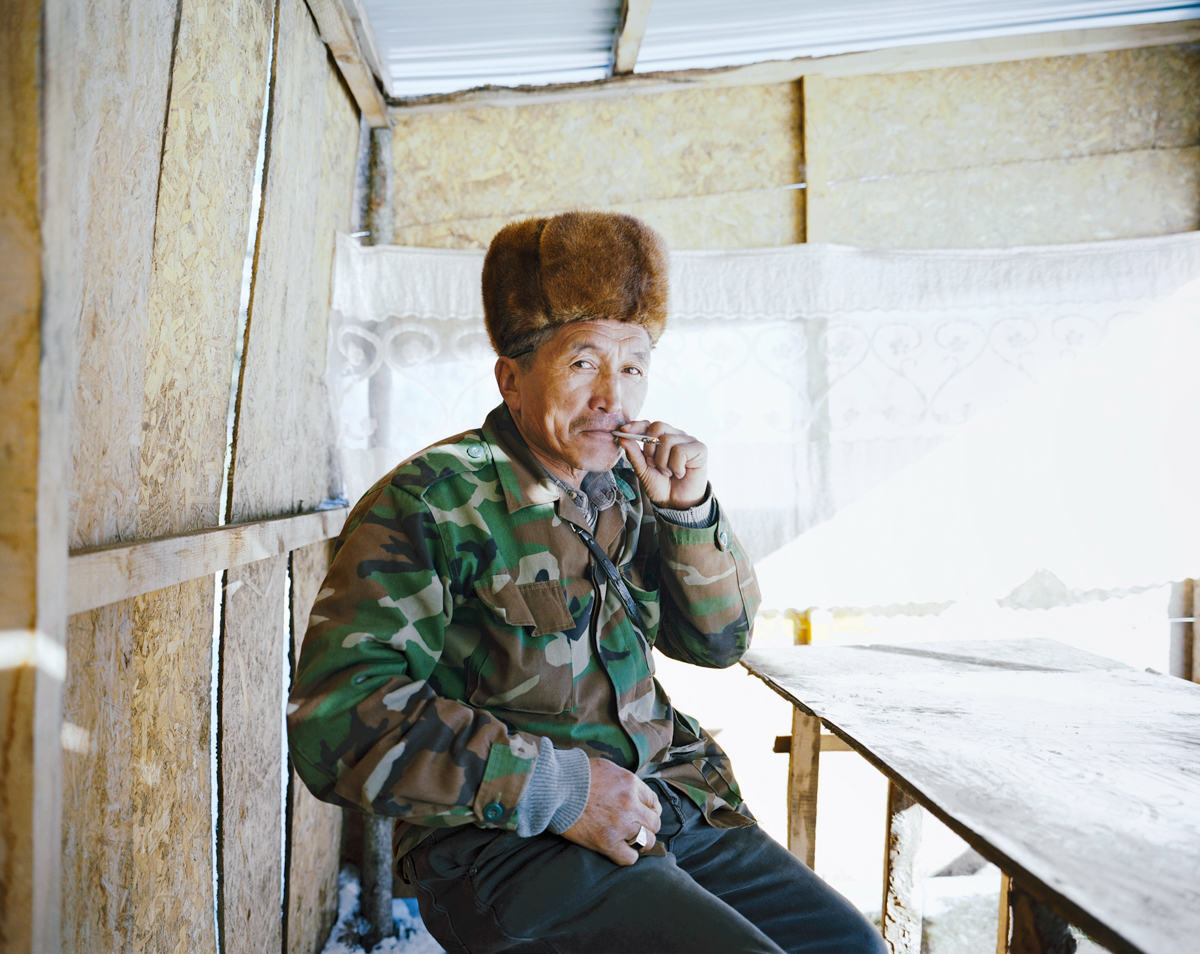
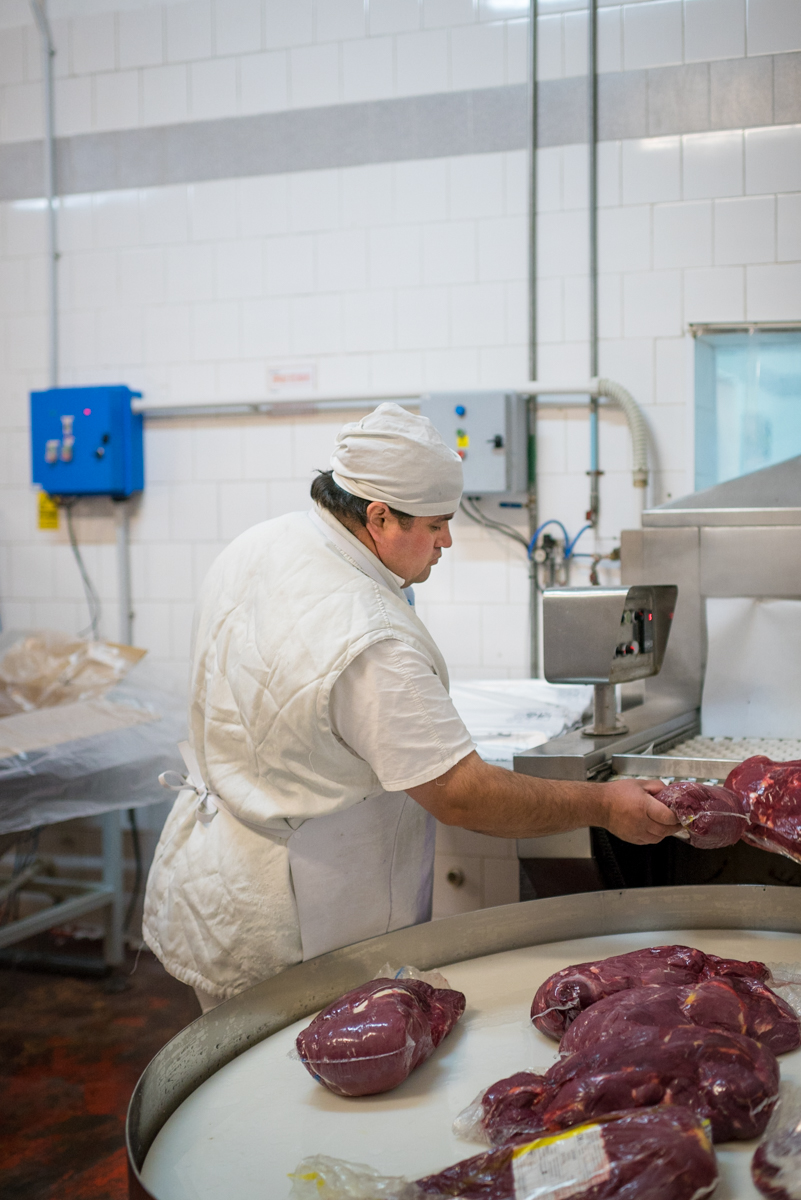
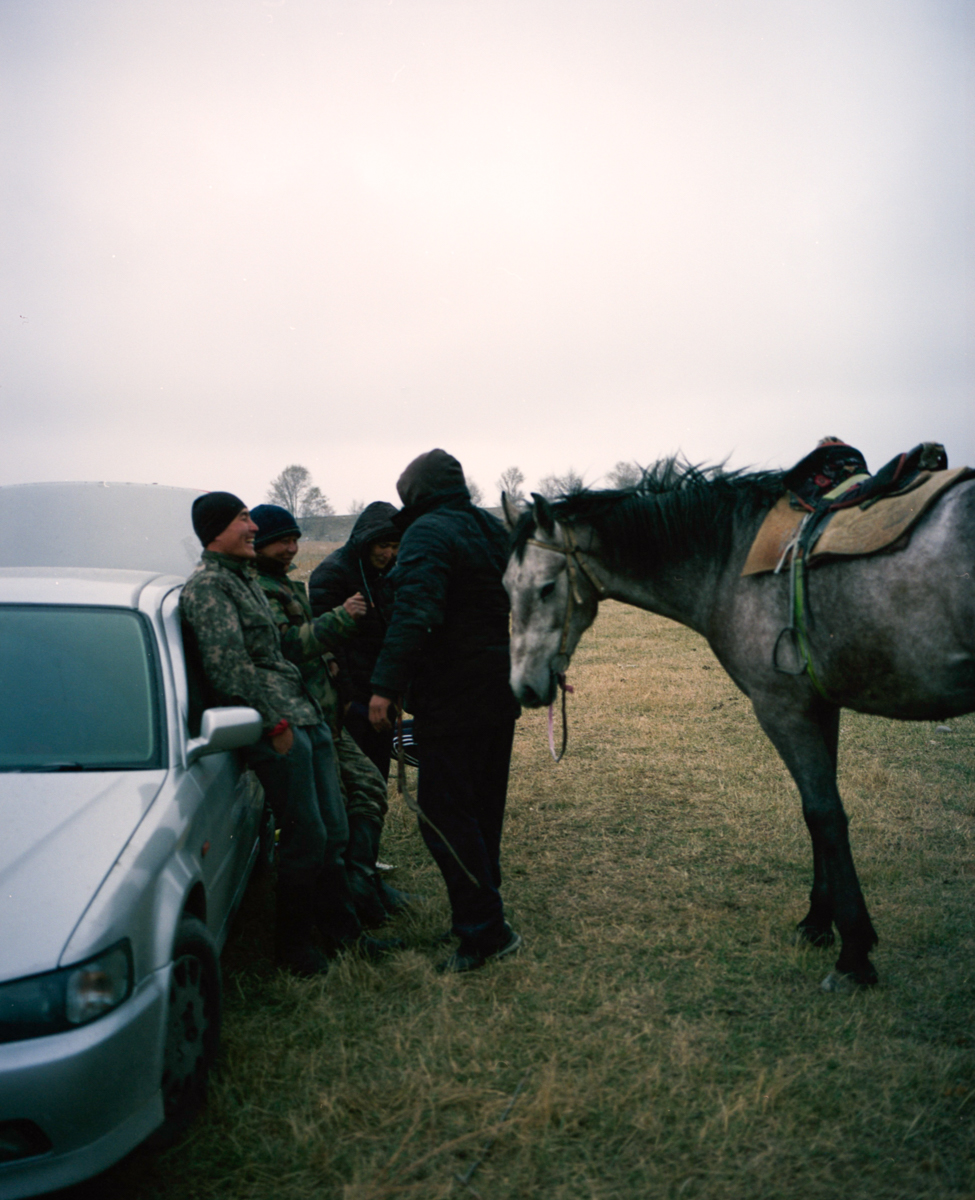
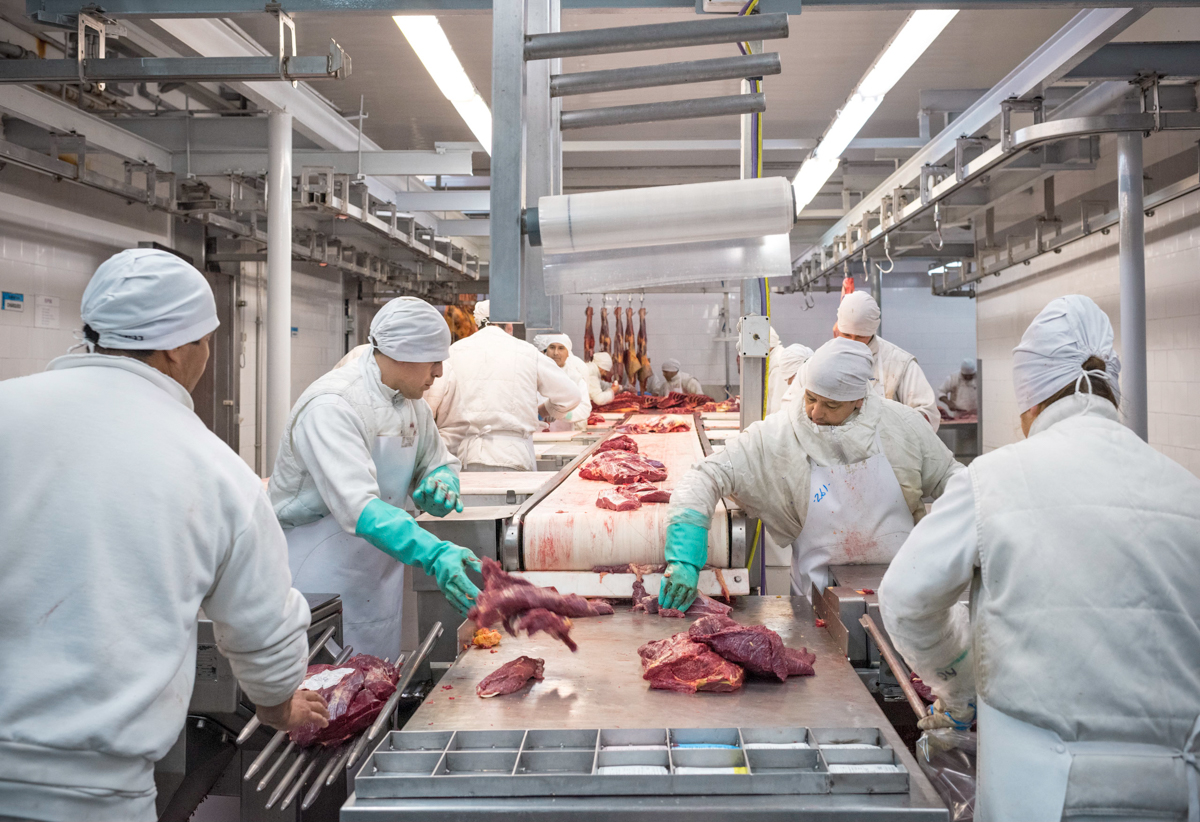
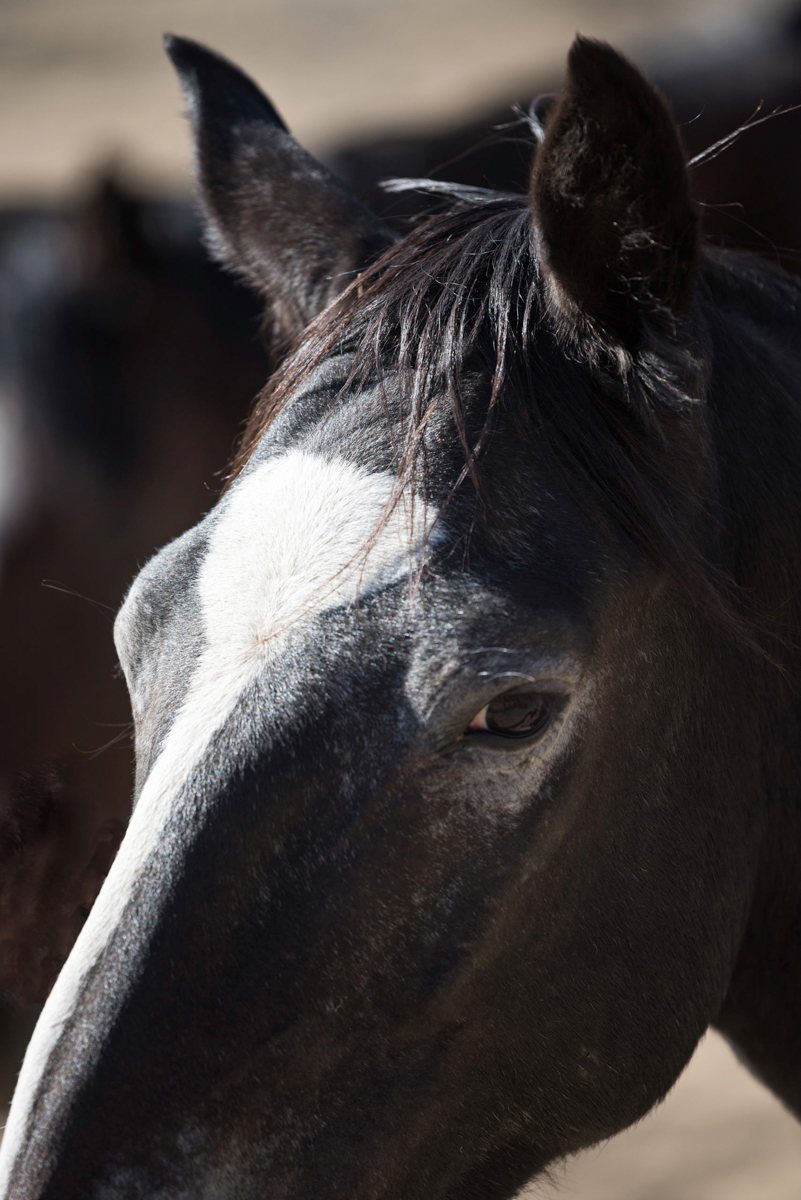
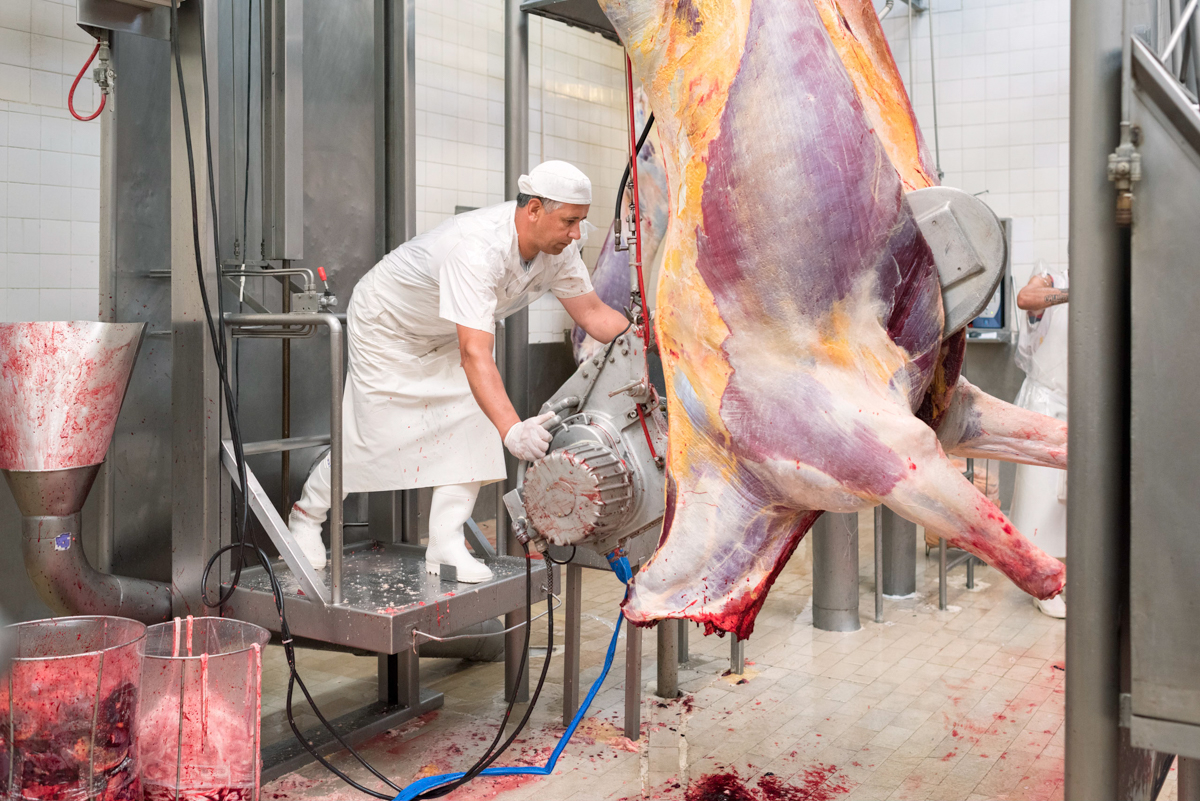
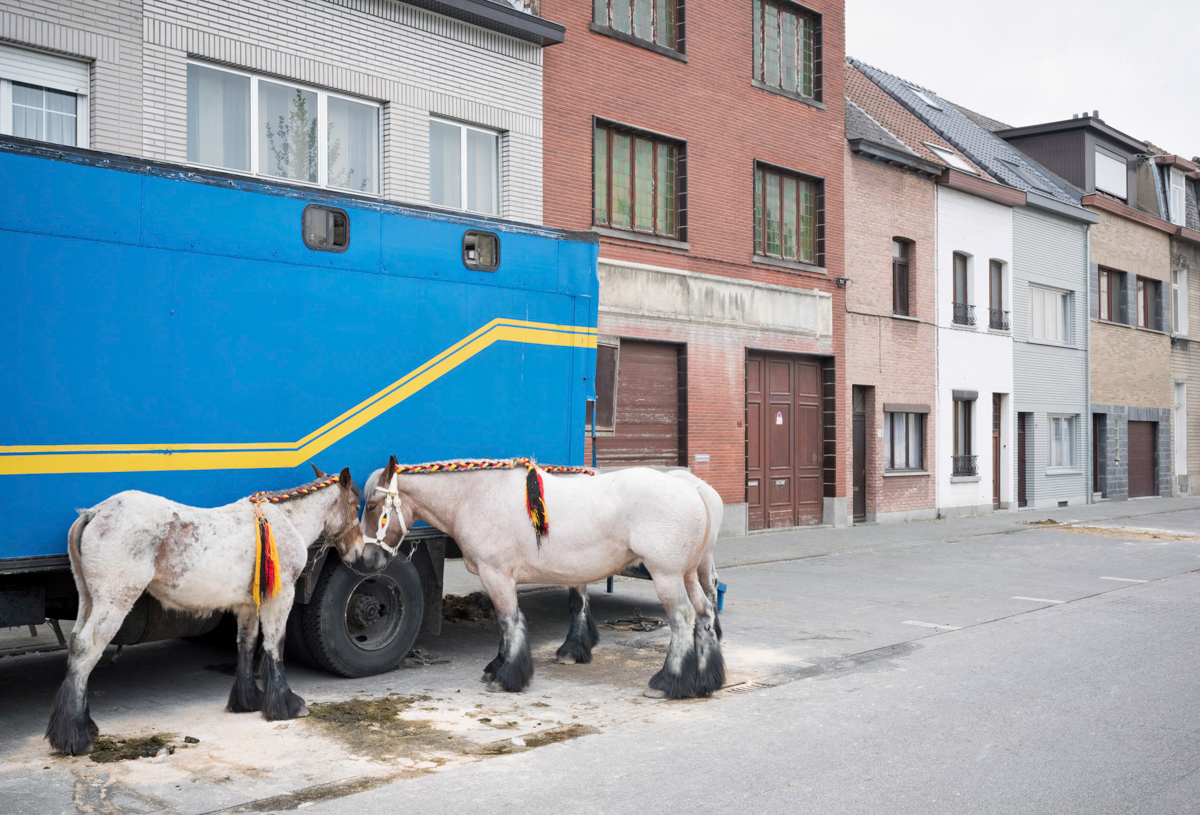
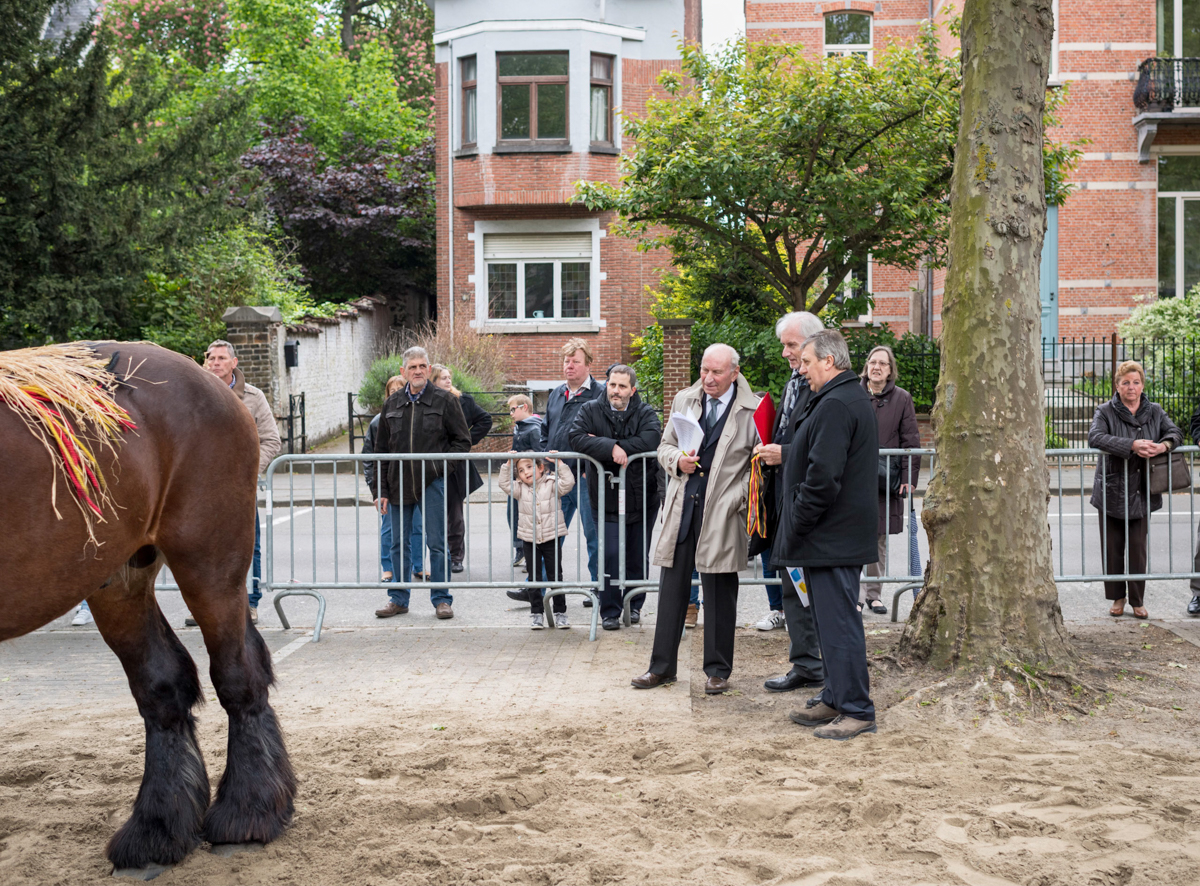

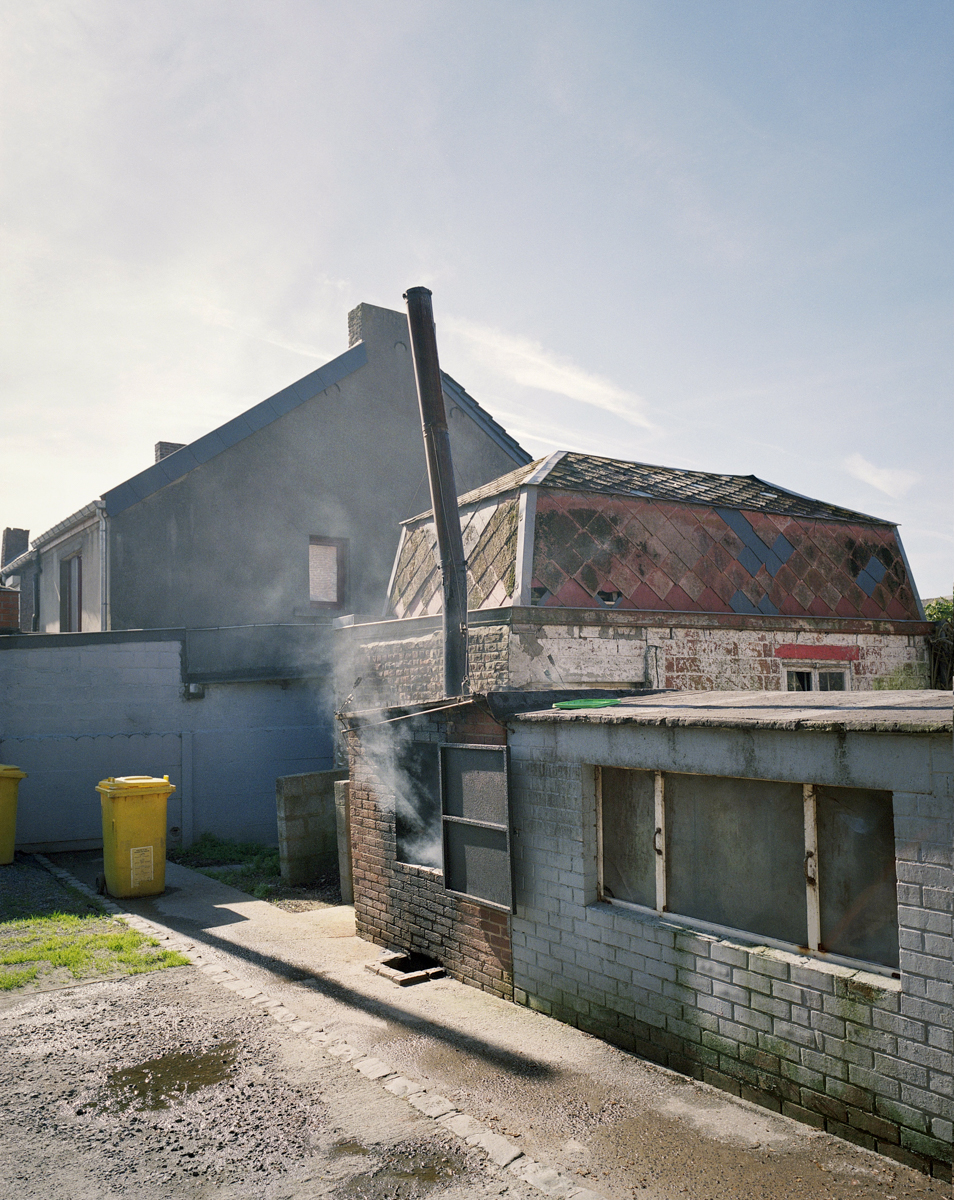
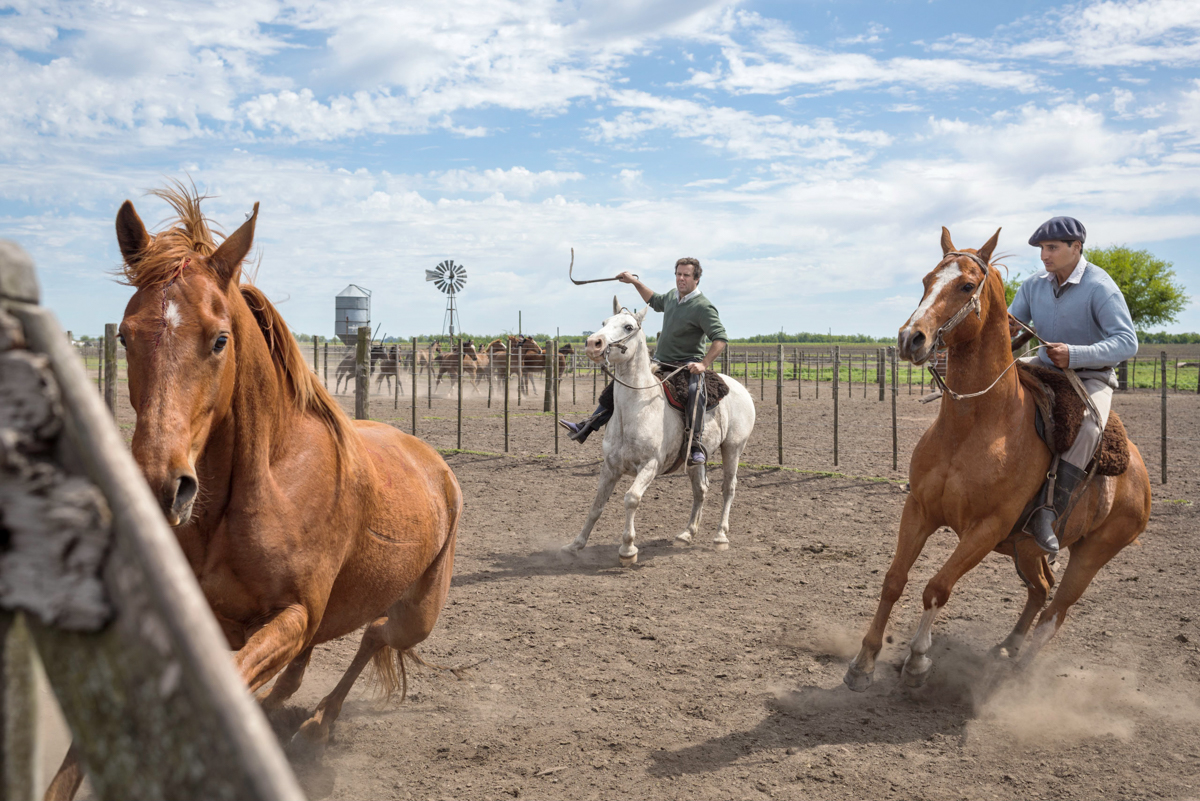
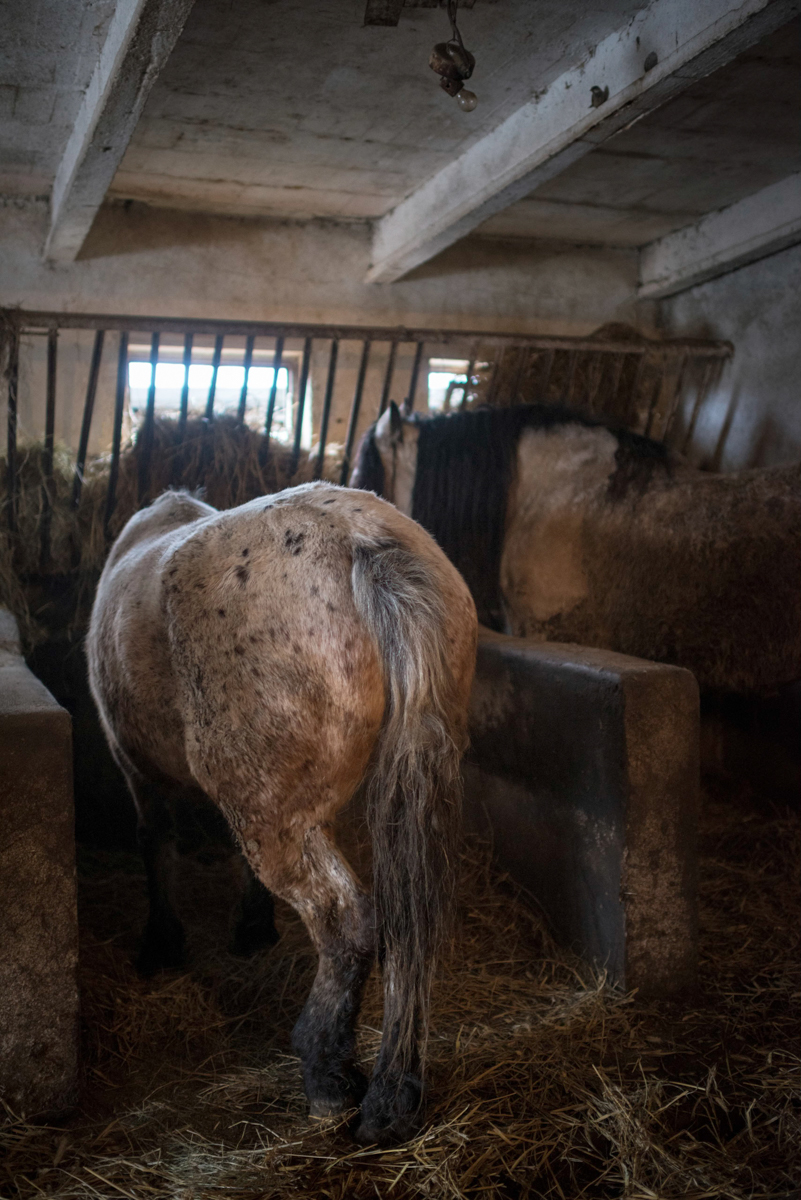
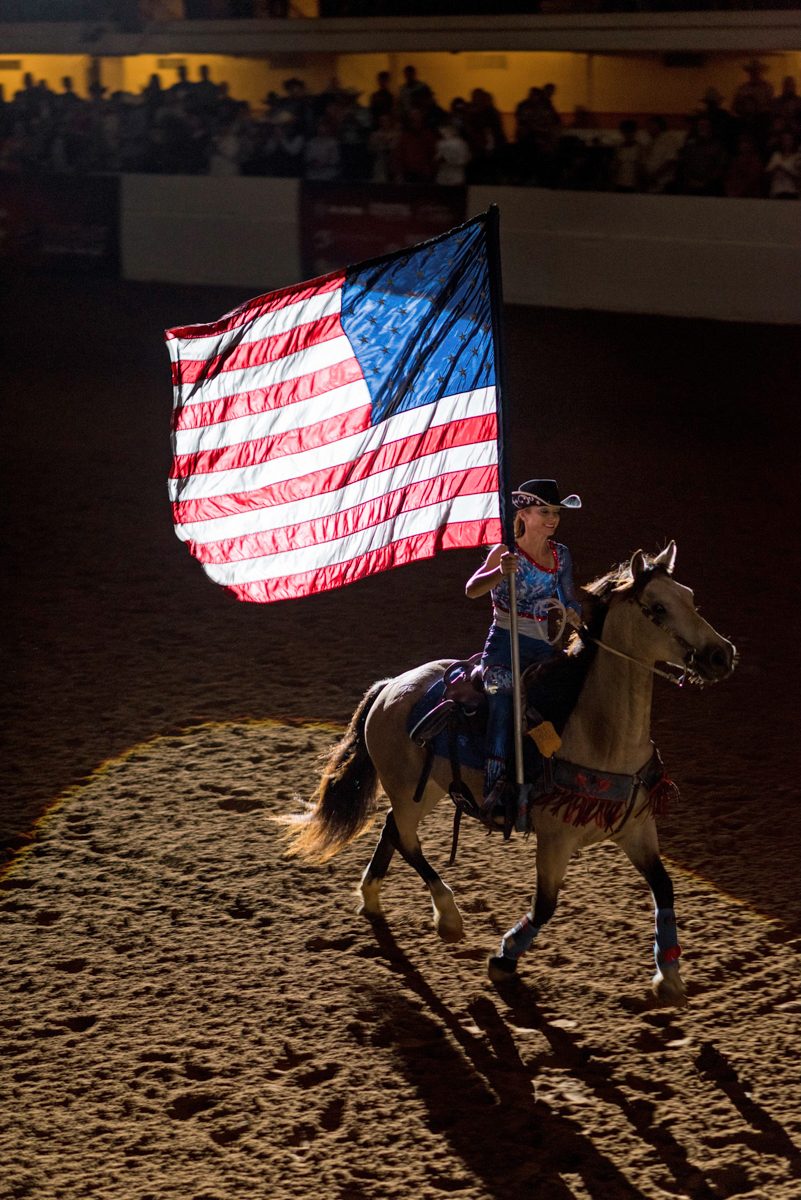
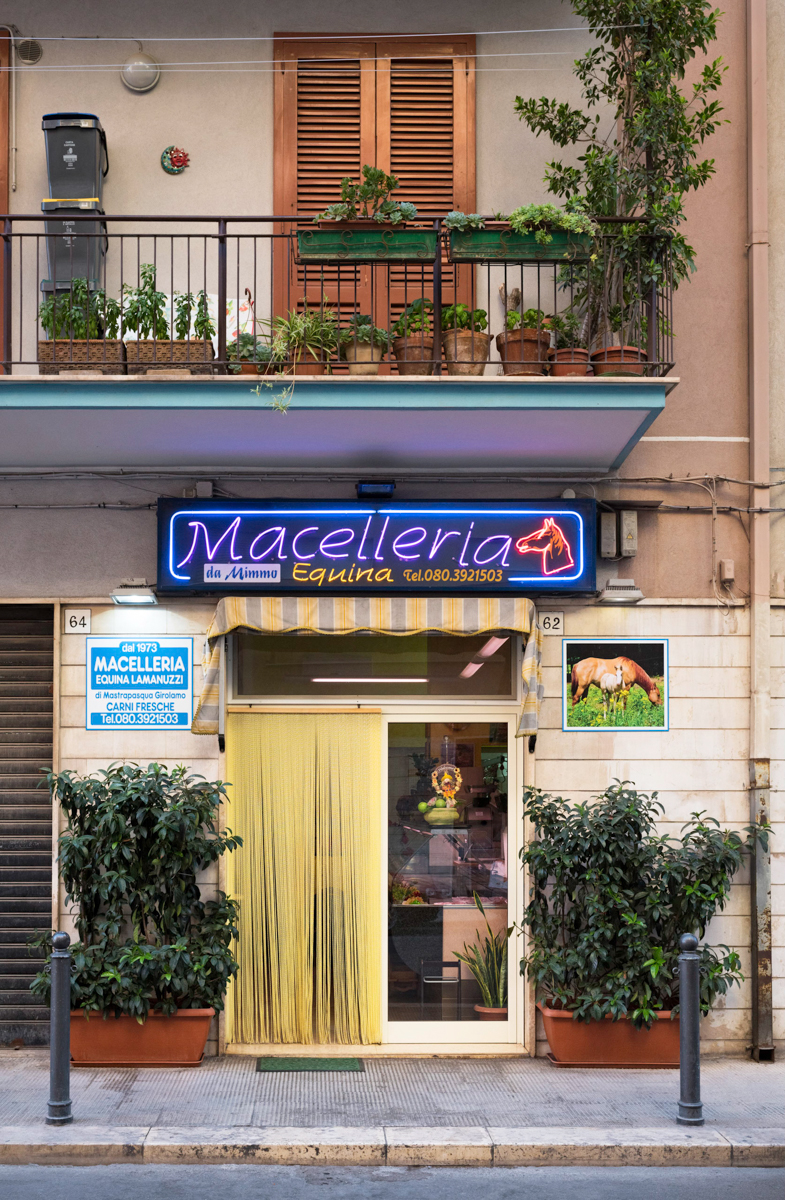
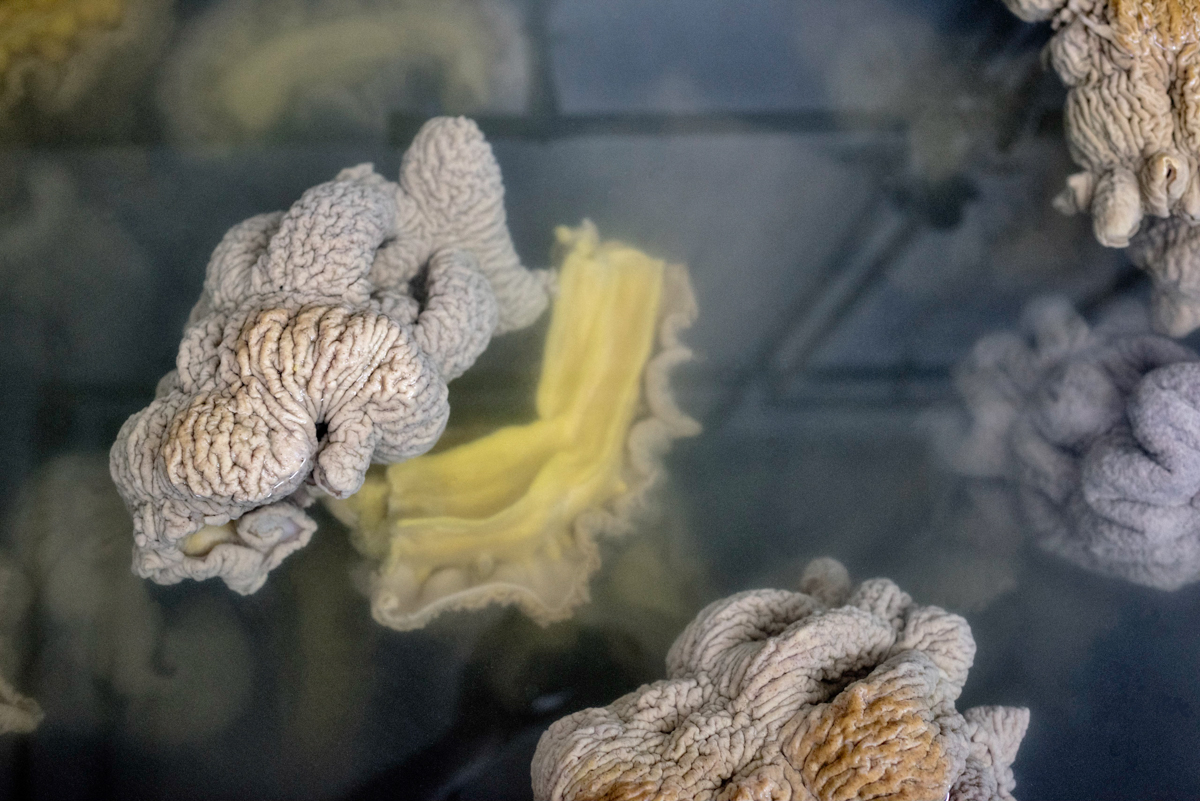
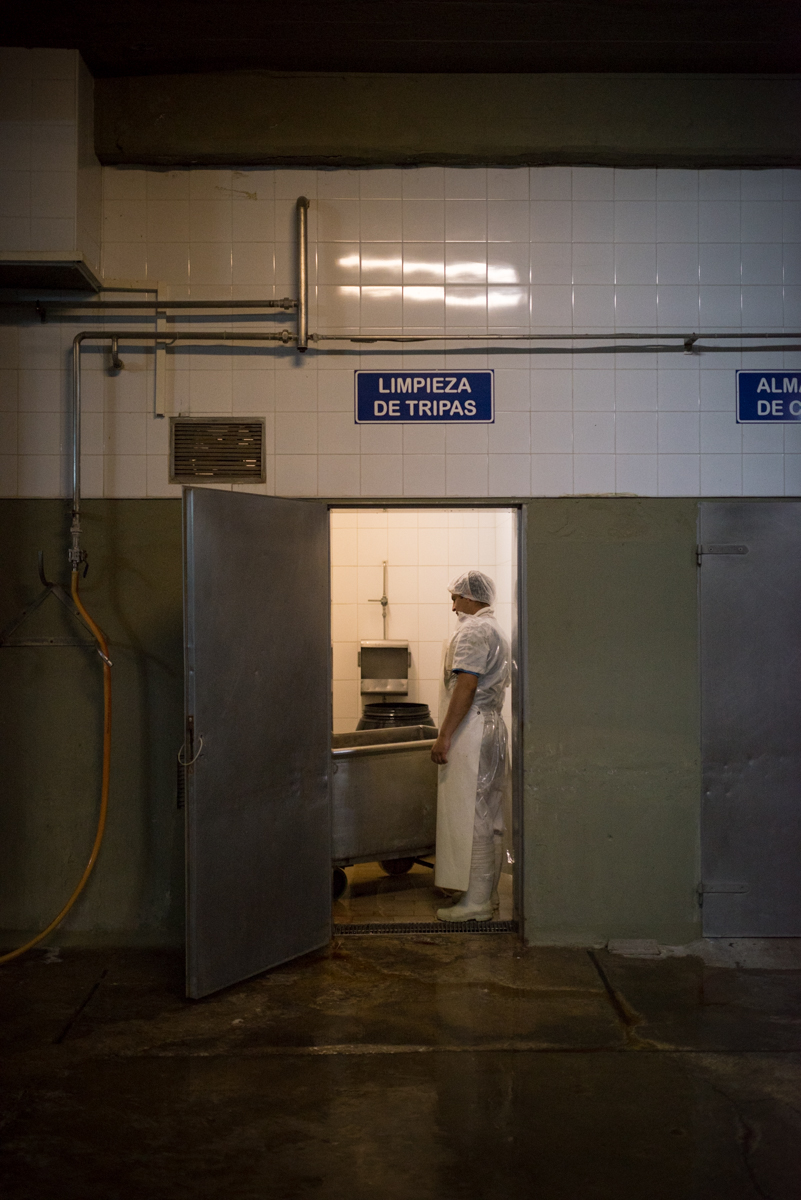
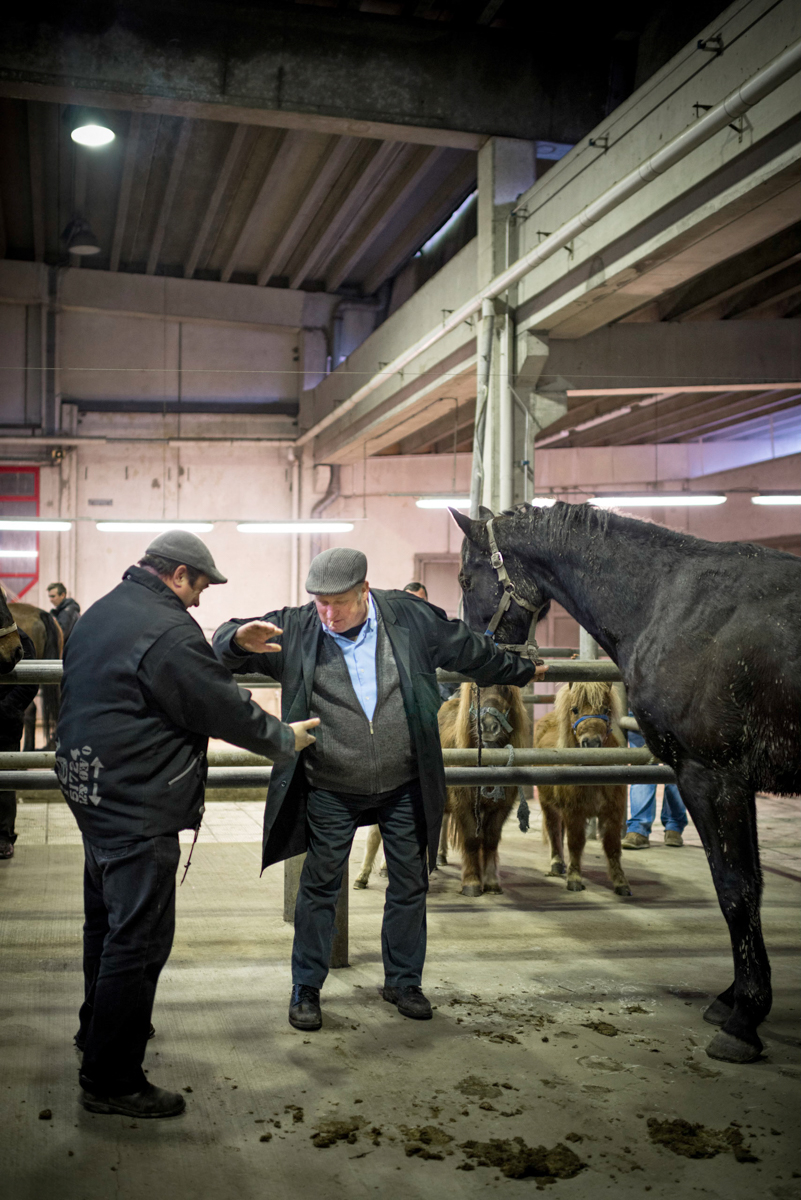
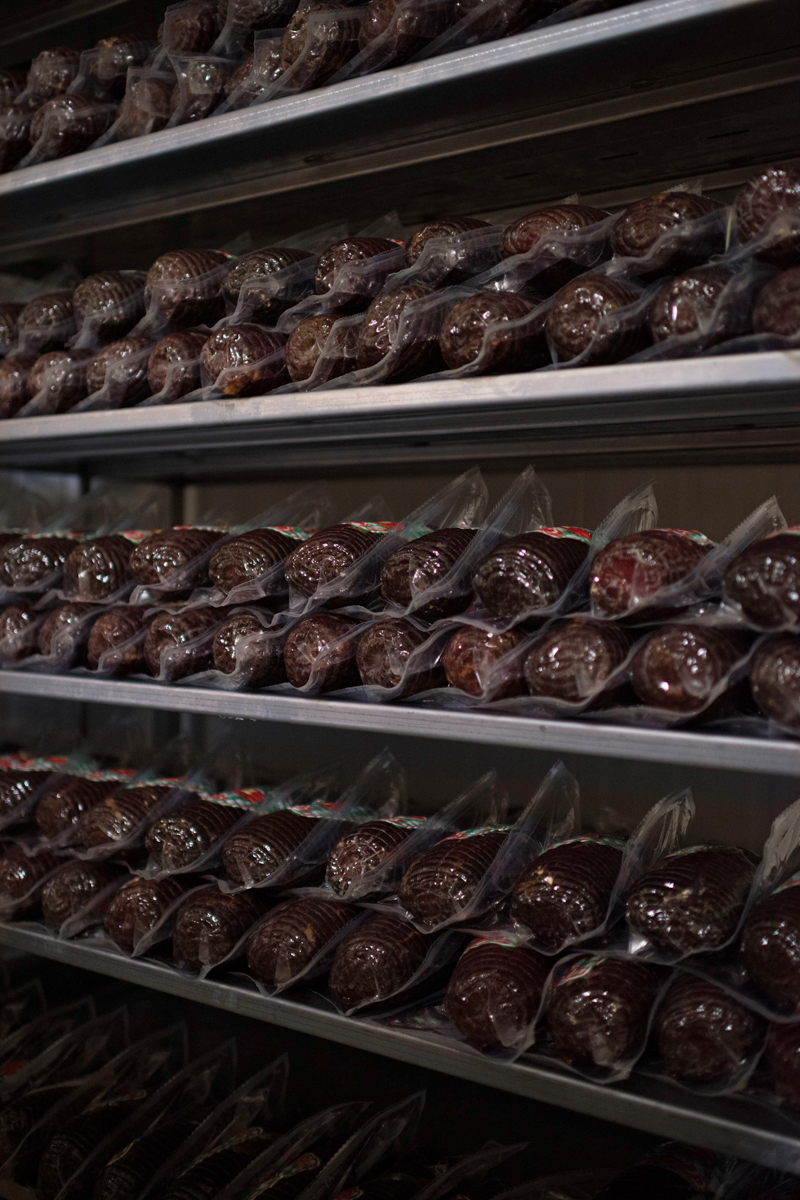


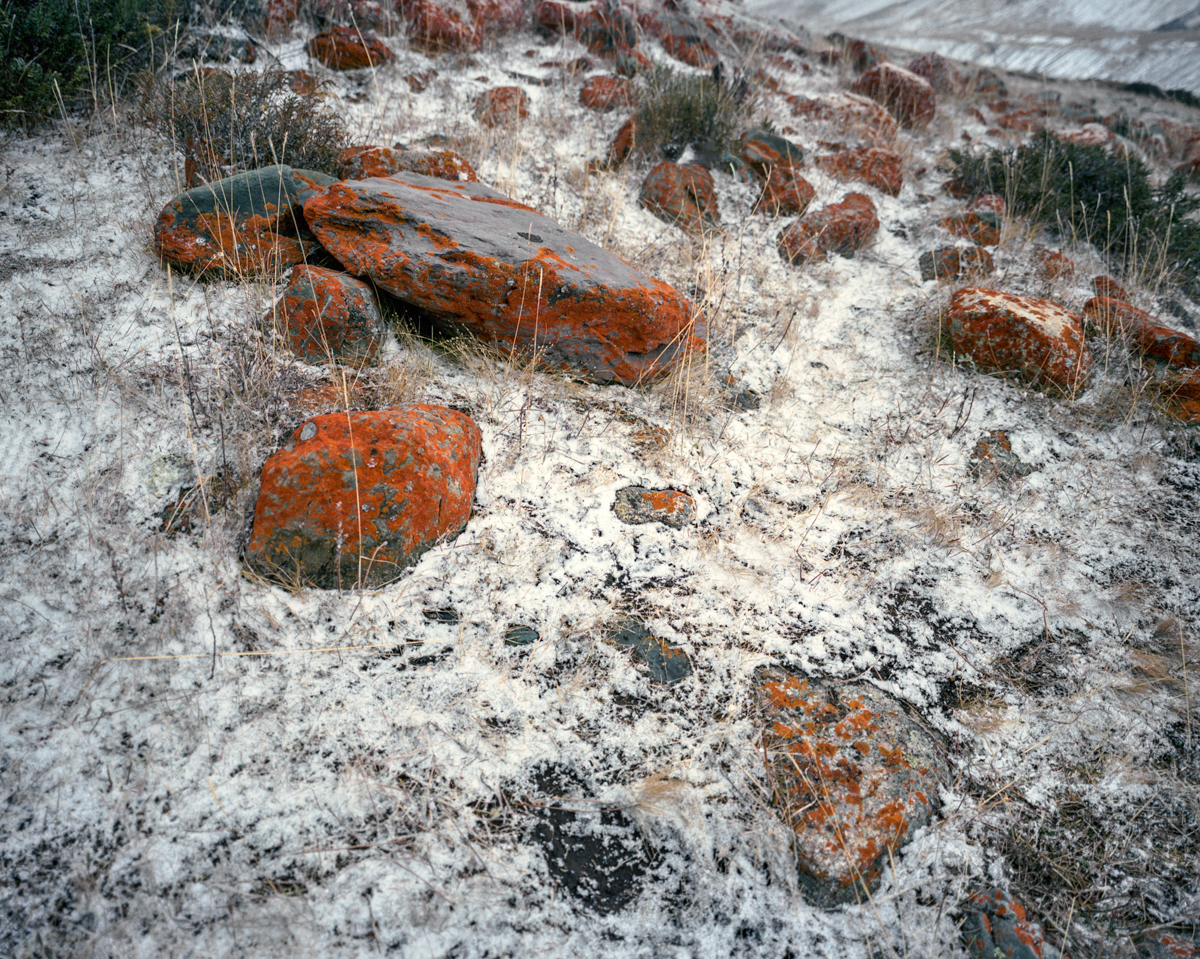

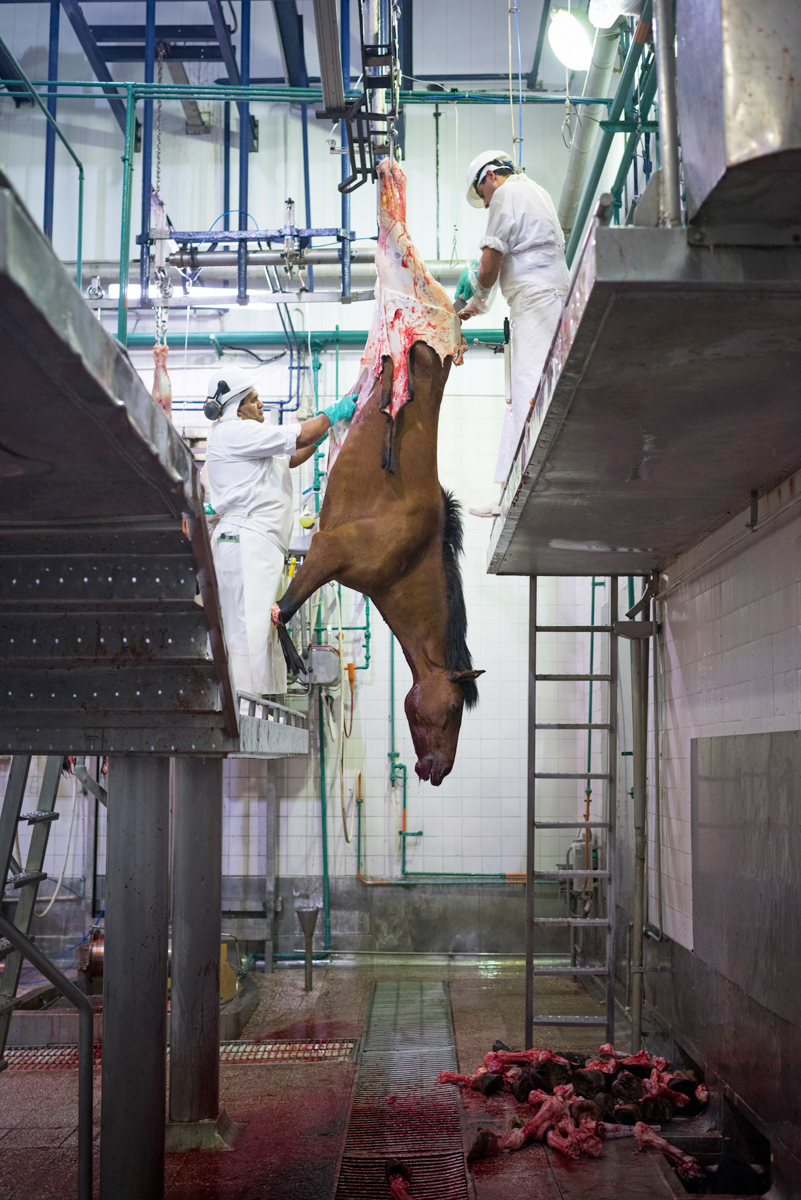
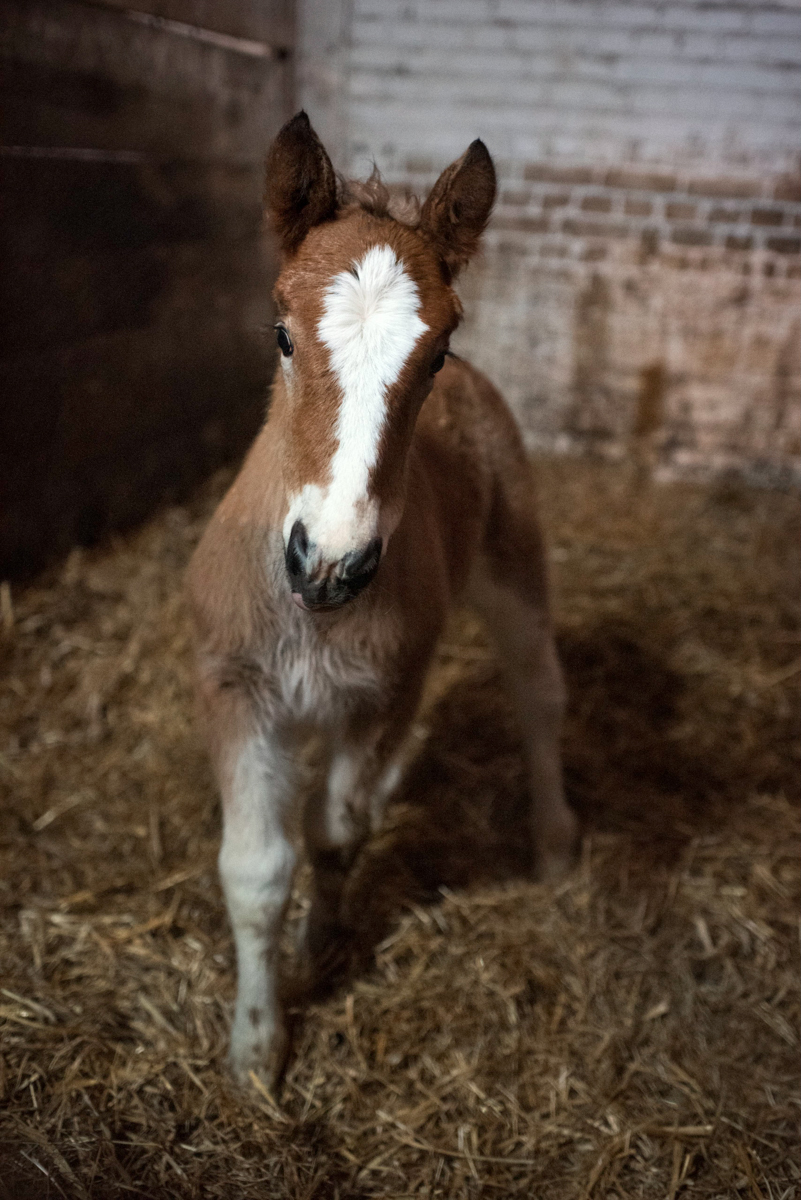
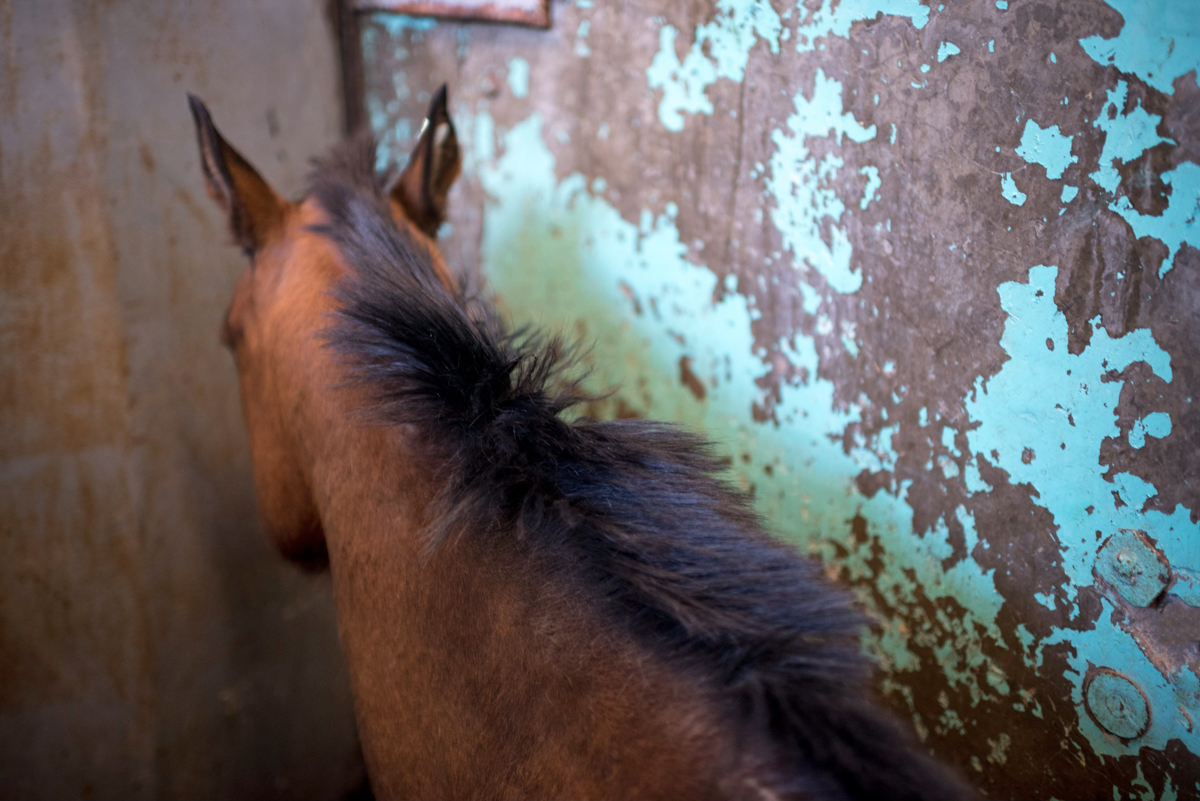
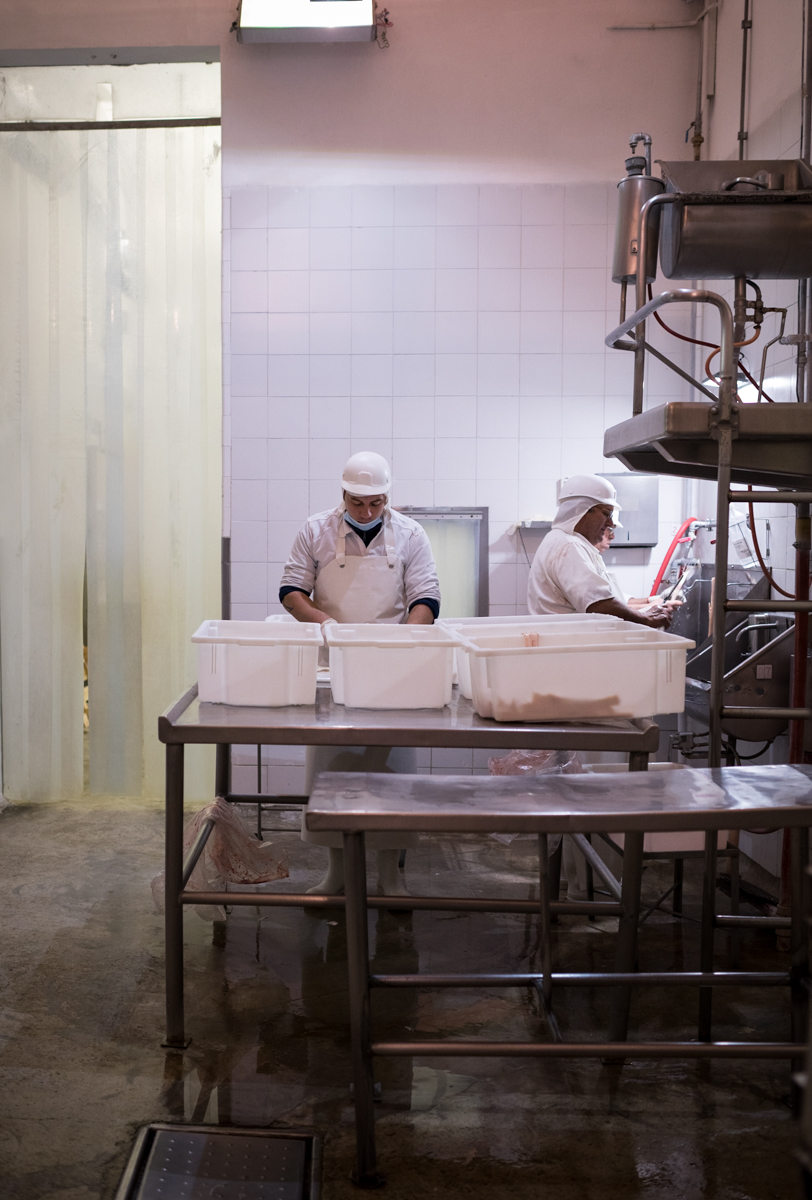
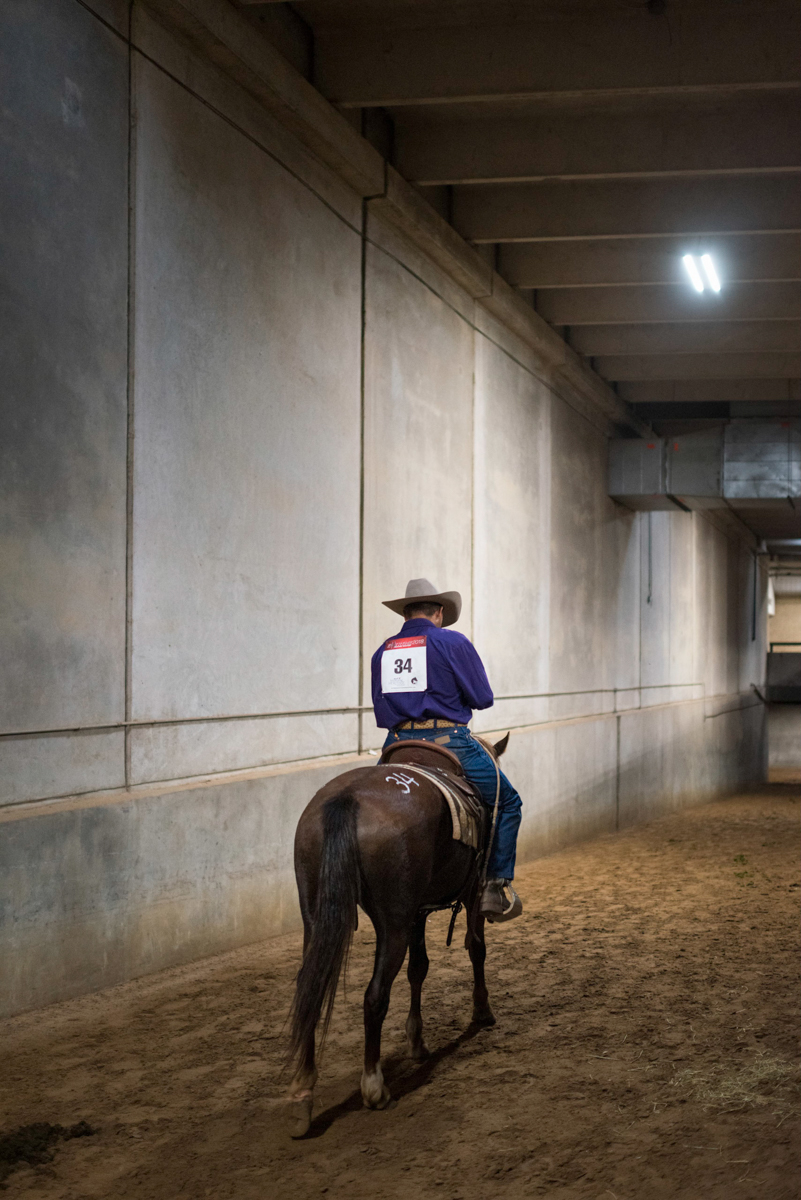

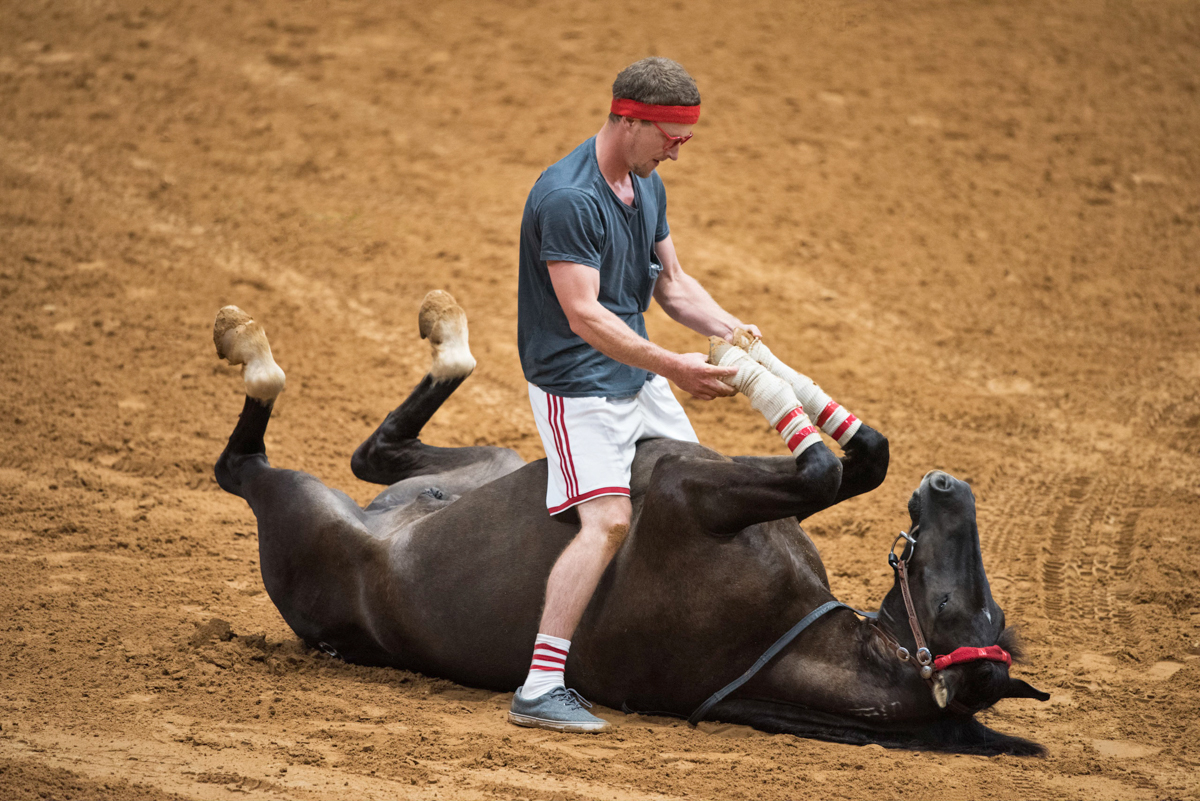
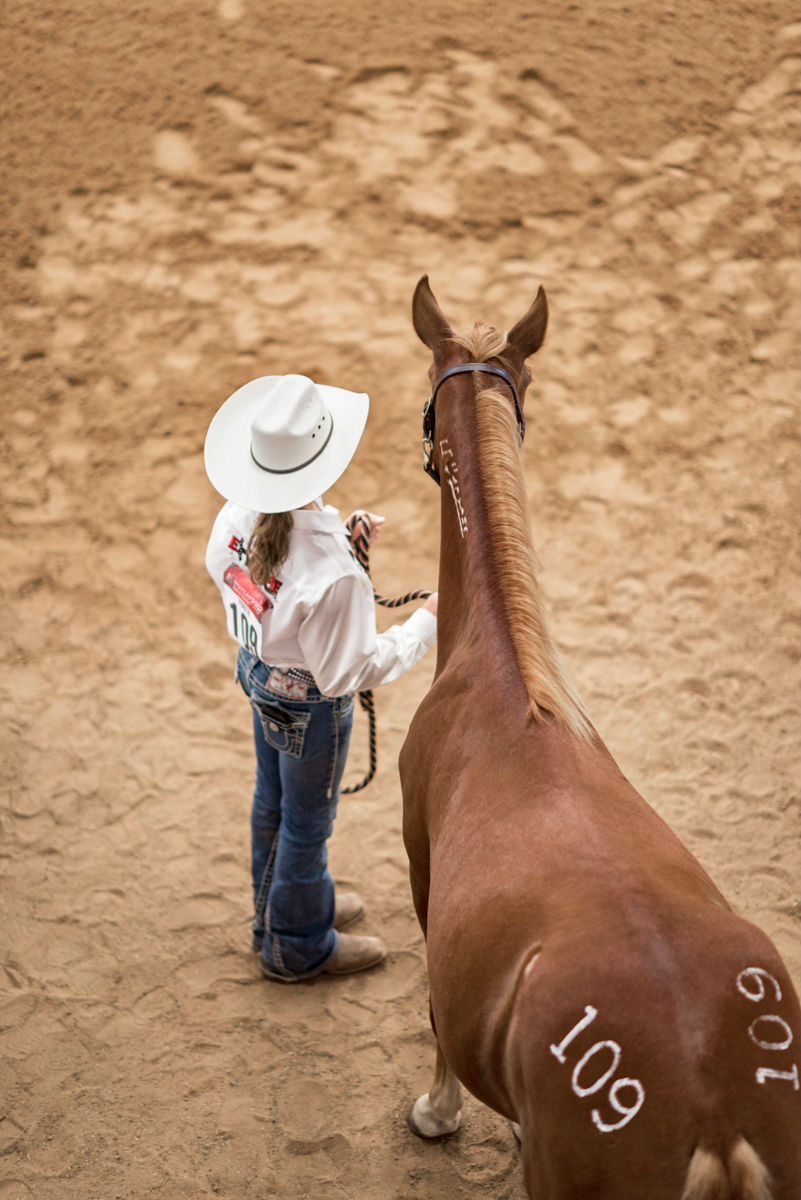
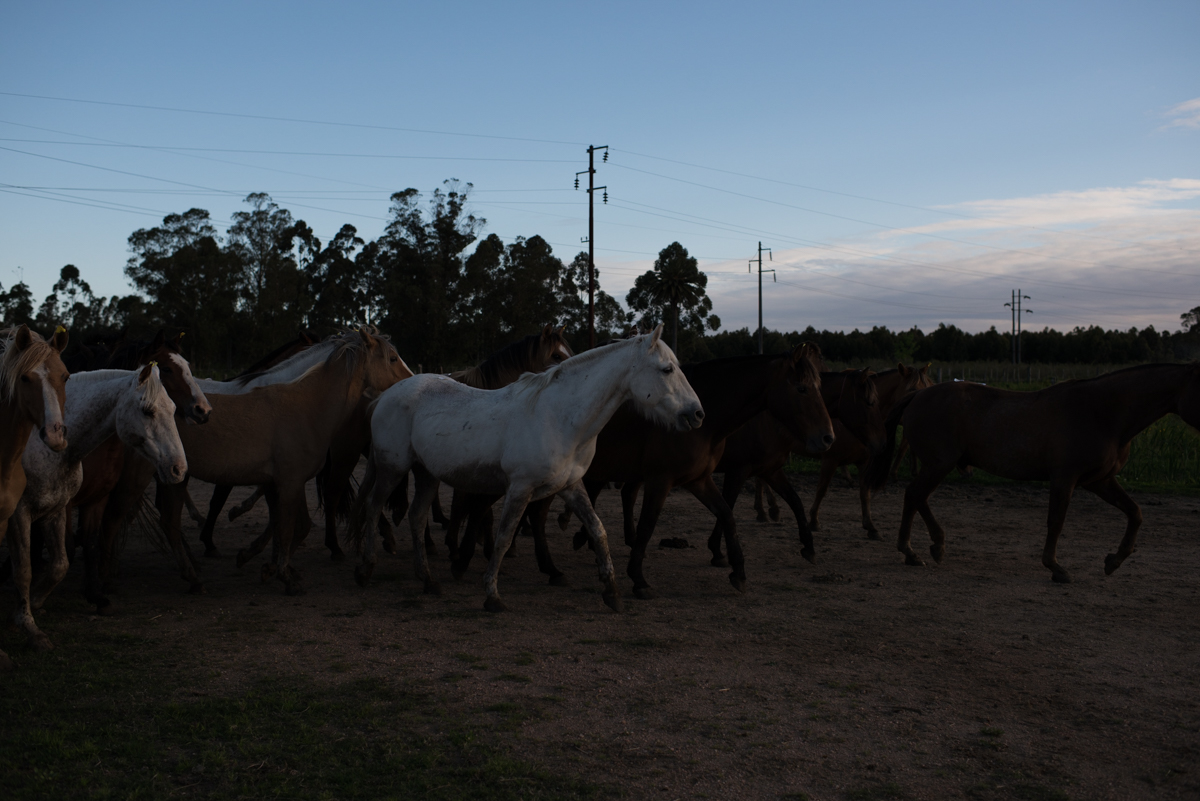
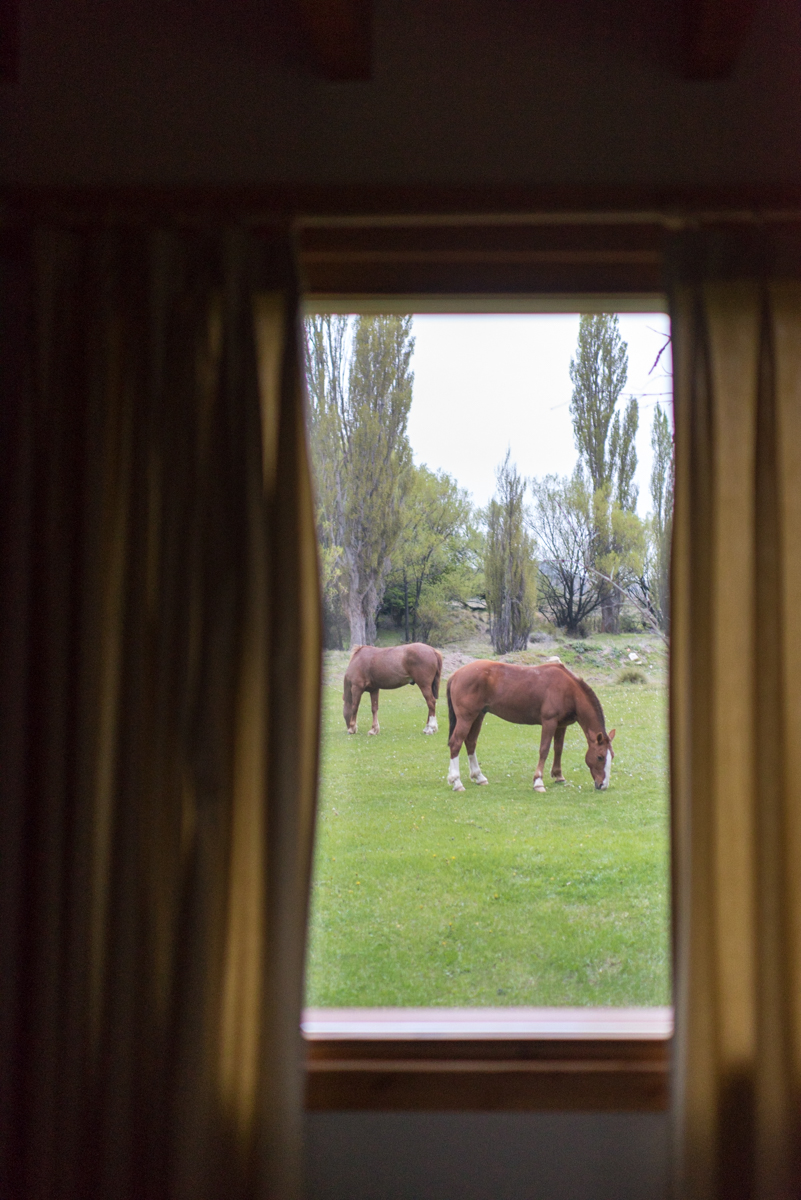
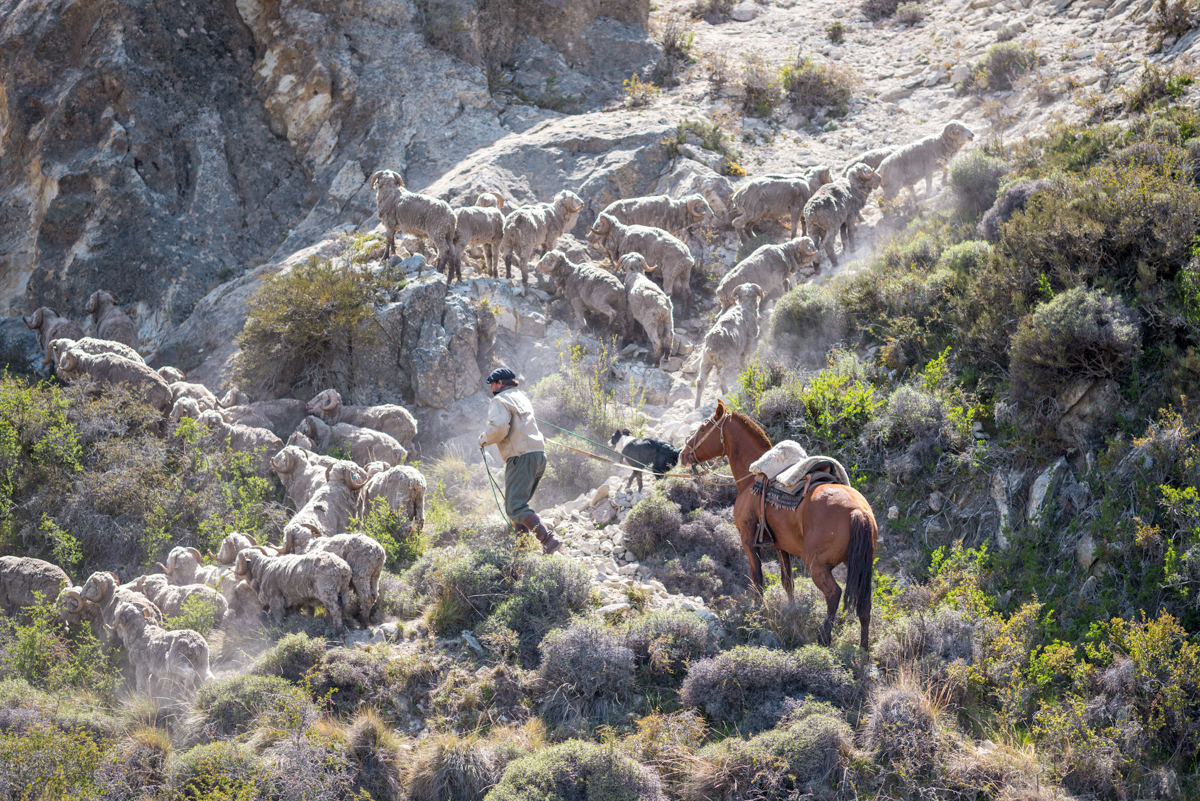
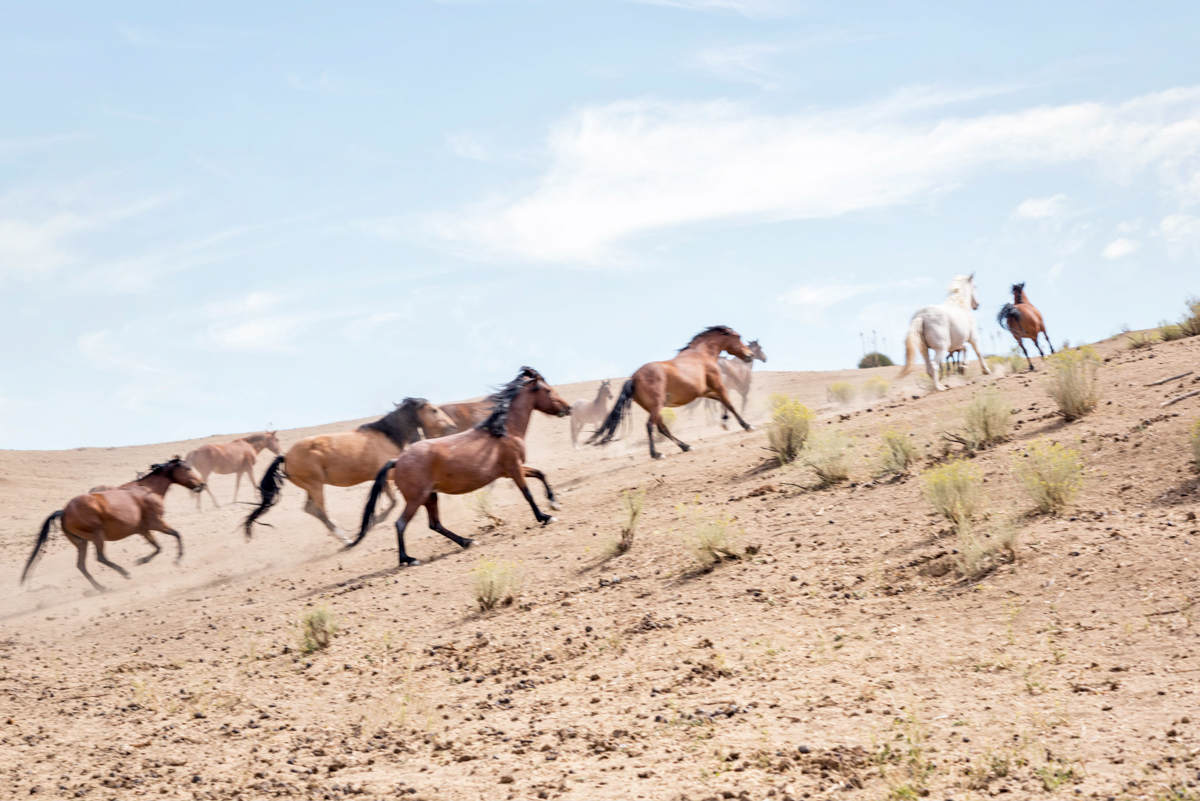
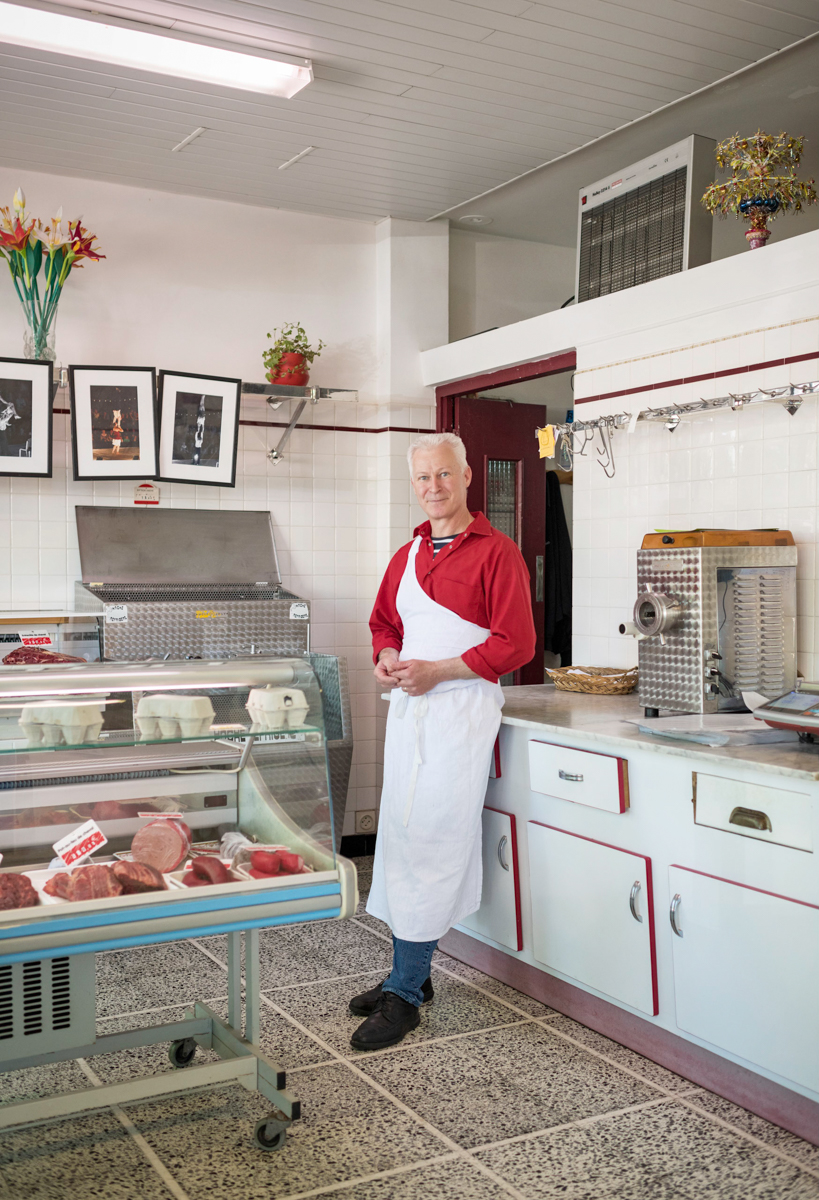

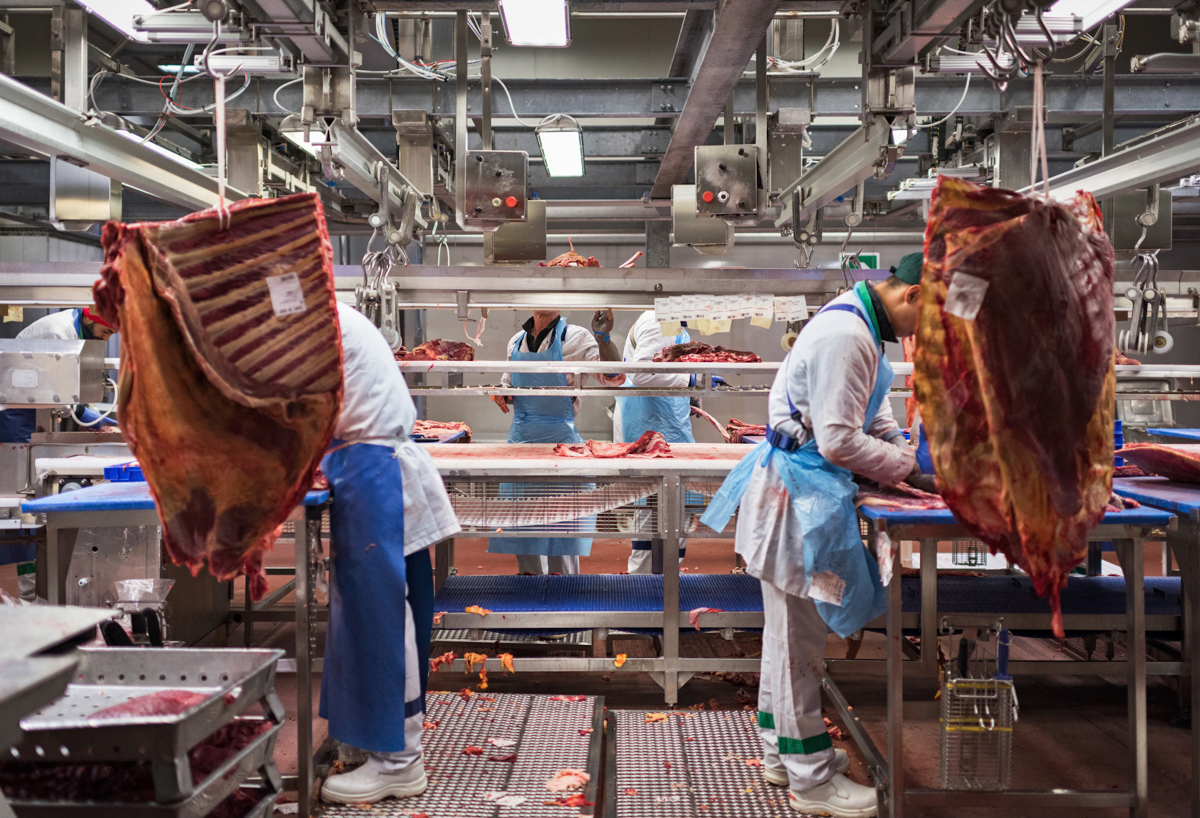
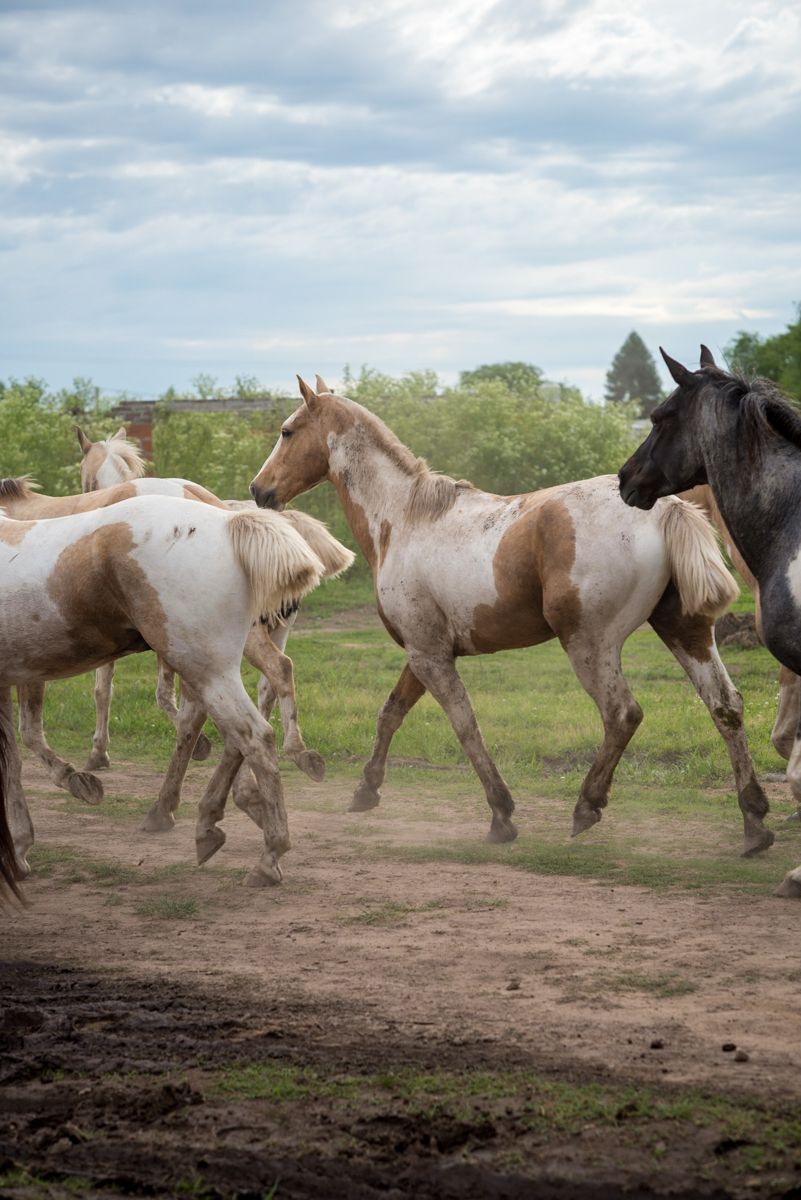

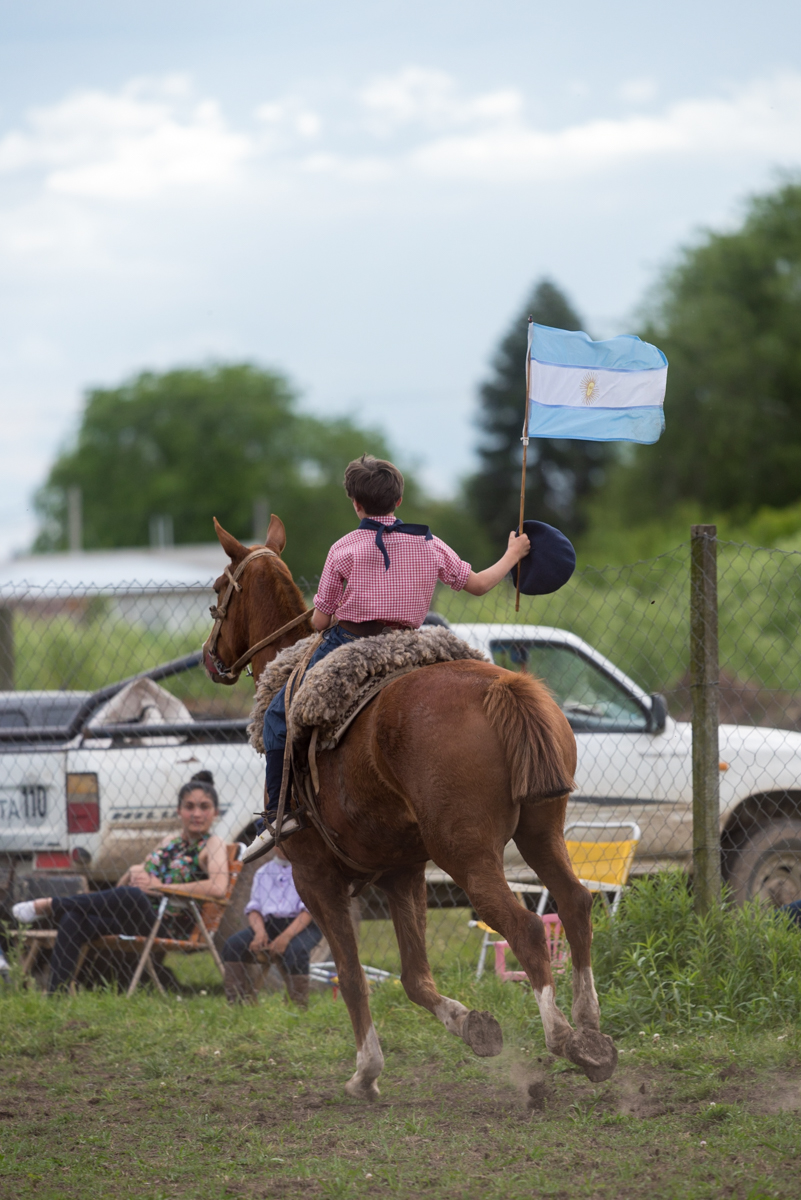


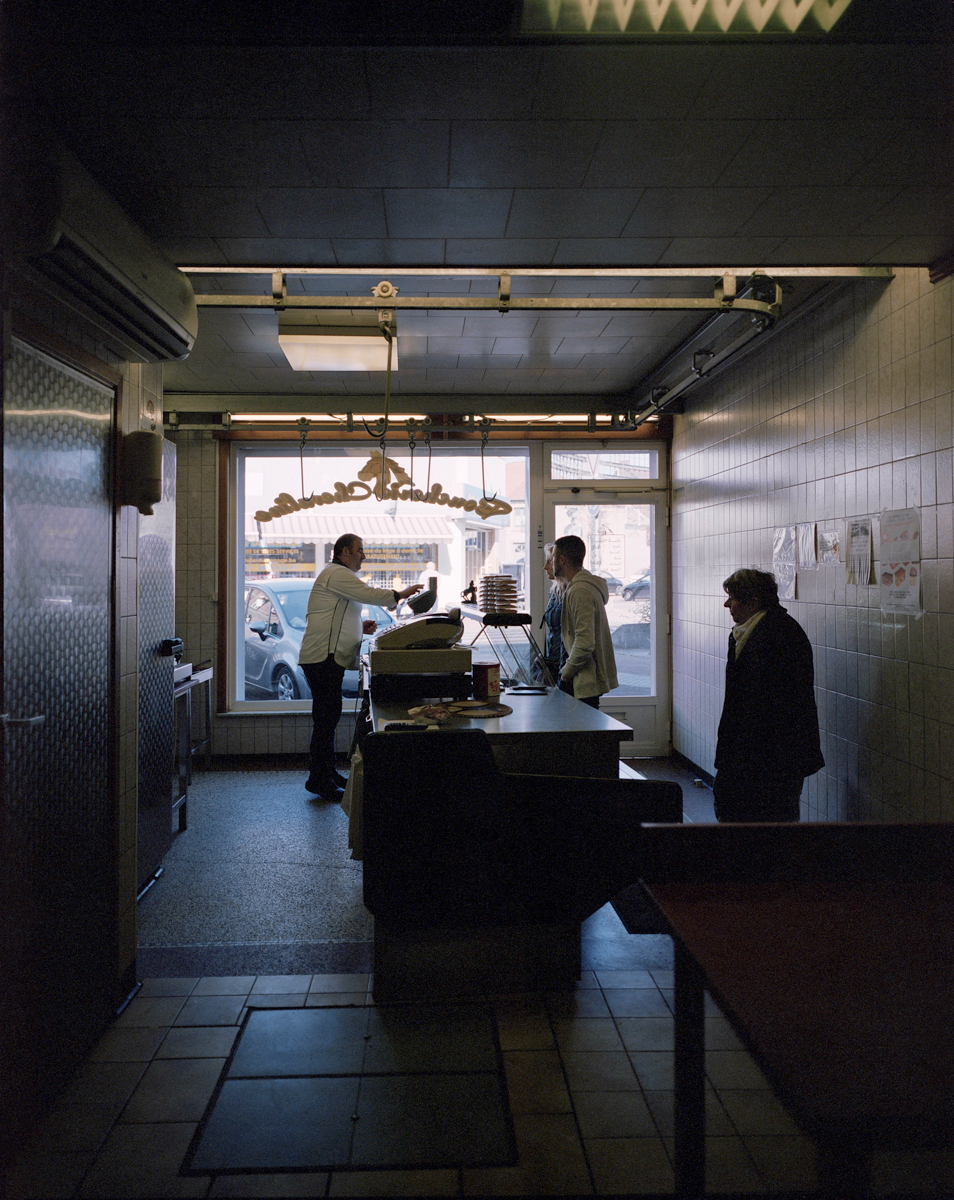



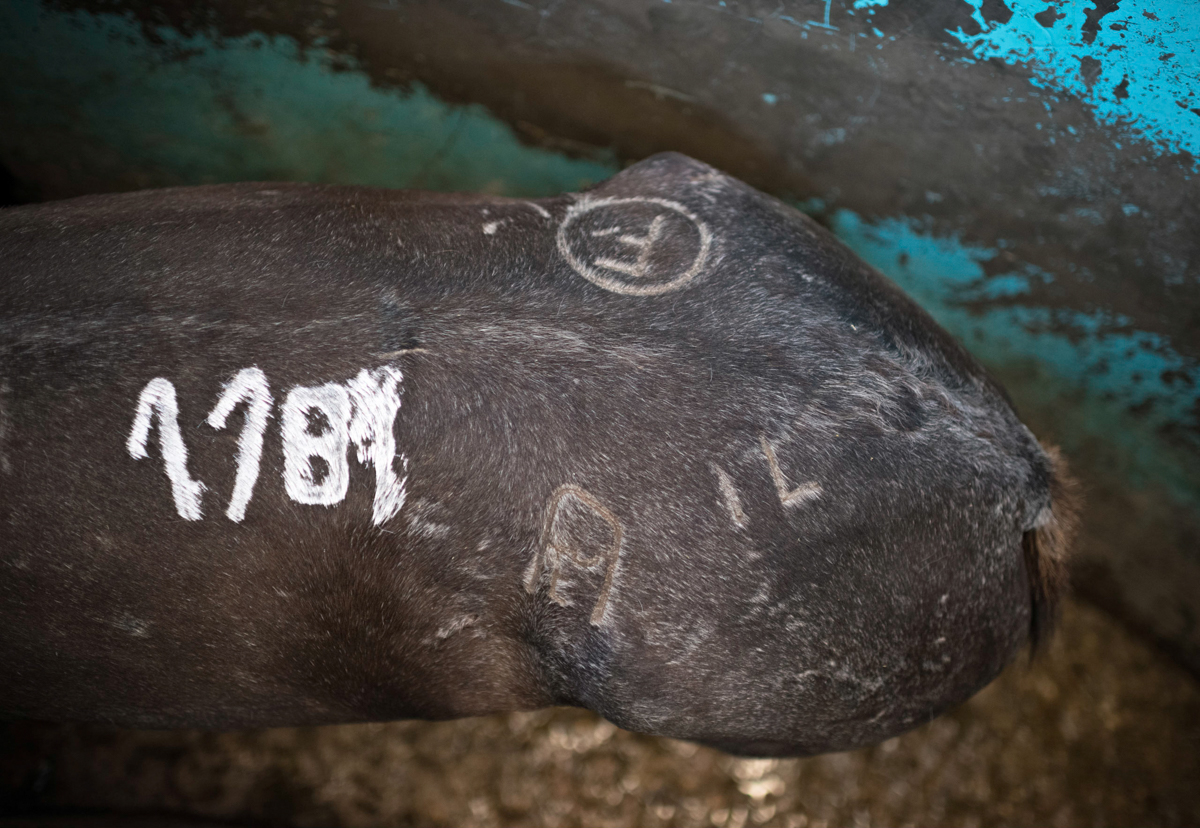
book
title: ‘Horse’
photography, concept & Text: Heleen Peeters
guest essay by Sylvine Pickel-Chevalier
graphic design: Rob van Hoesel
language: English with Dutch inlay
format: 200 x 305 mm
pages: 232
first edition: 1350
ISBN: 978-94-92051-56-1
published: November 2020
publisher: The Eriskay Connection
order here
![]()
![]()
![]()
![]()
![]()
![]()
![]()
![]()
![]()
![]()
![]()
![]()

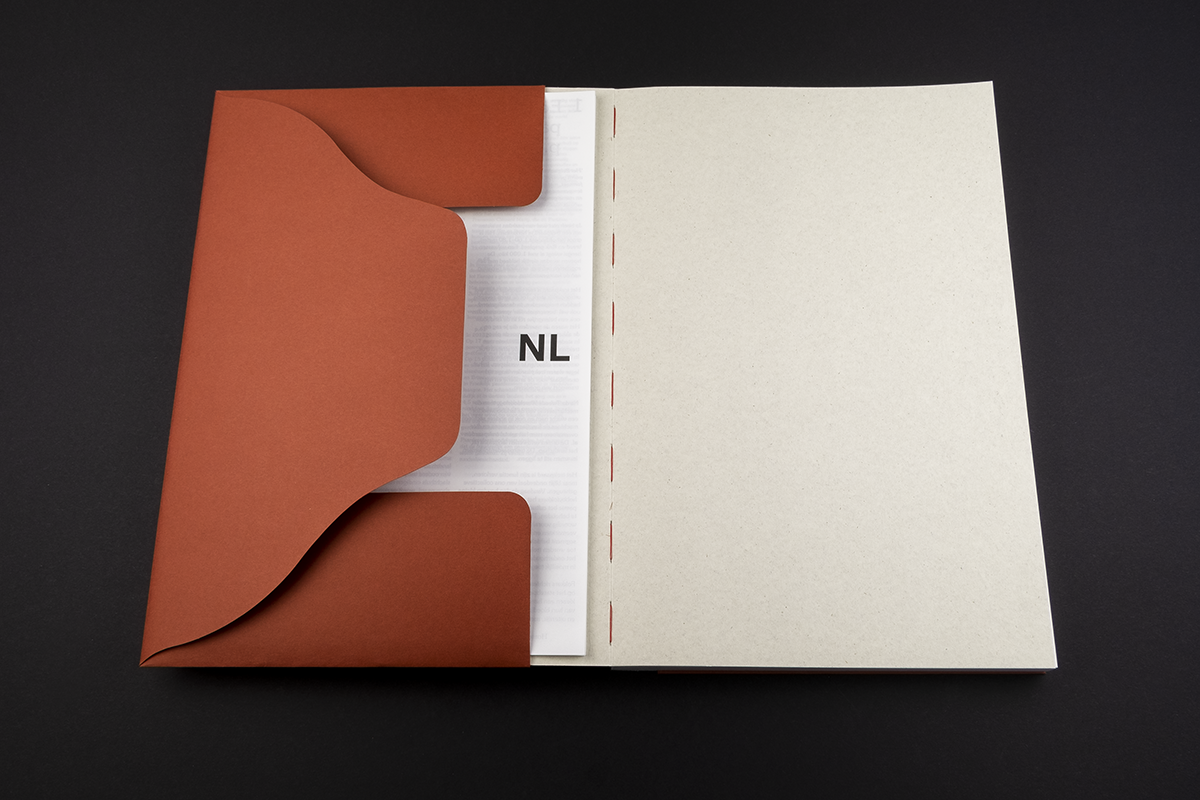
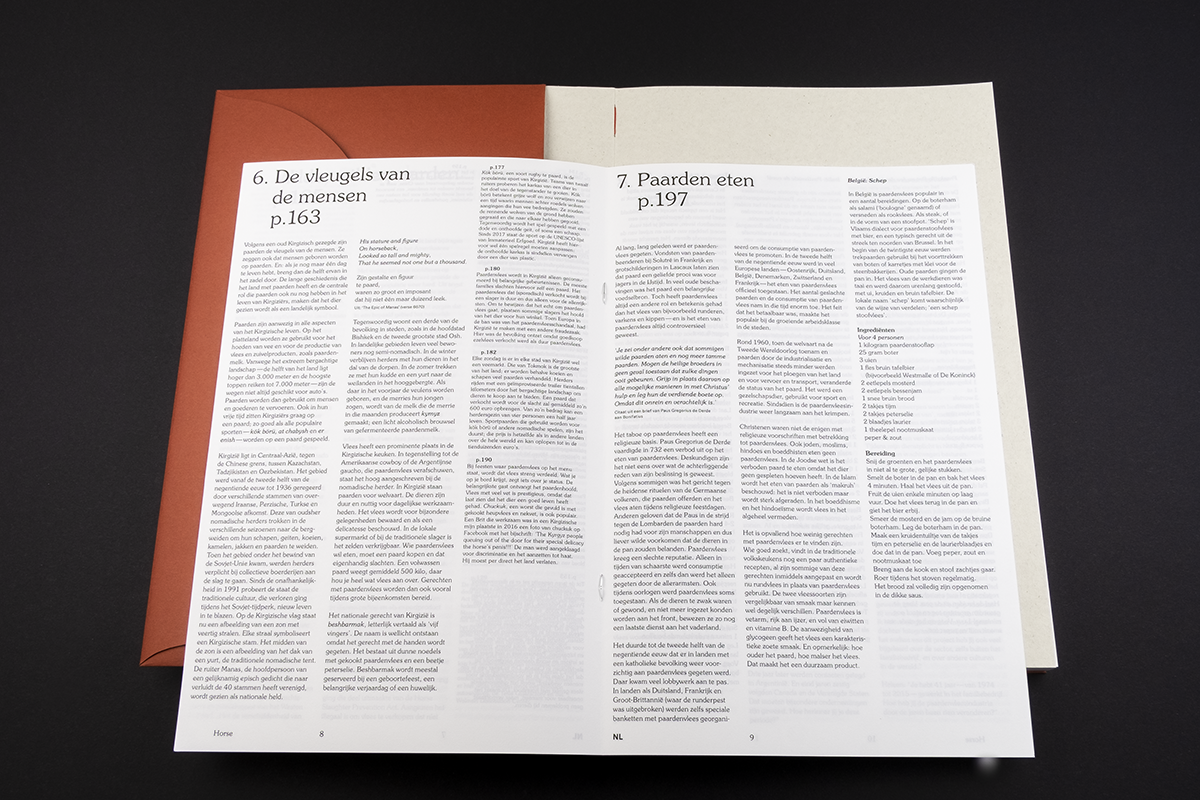
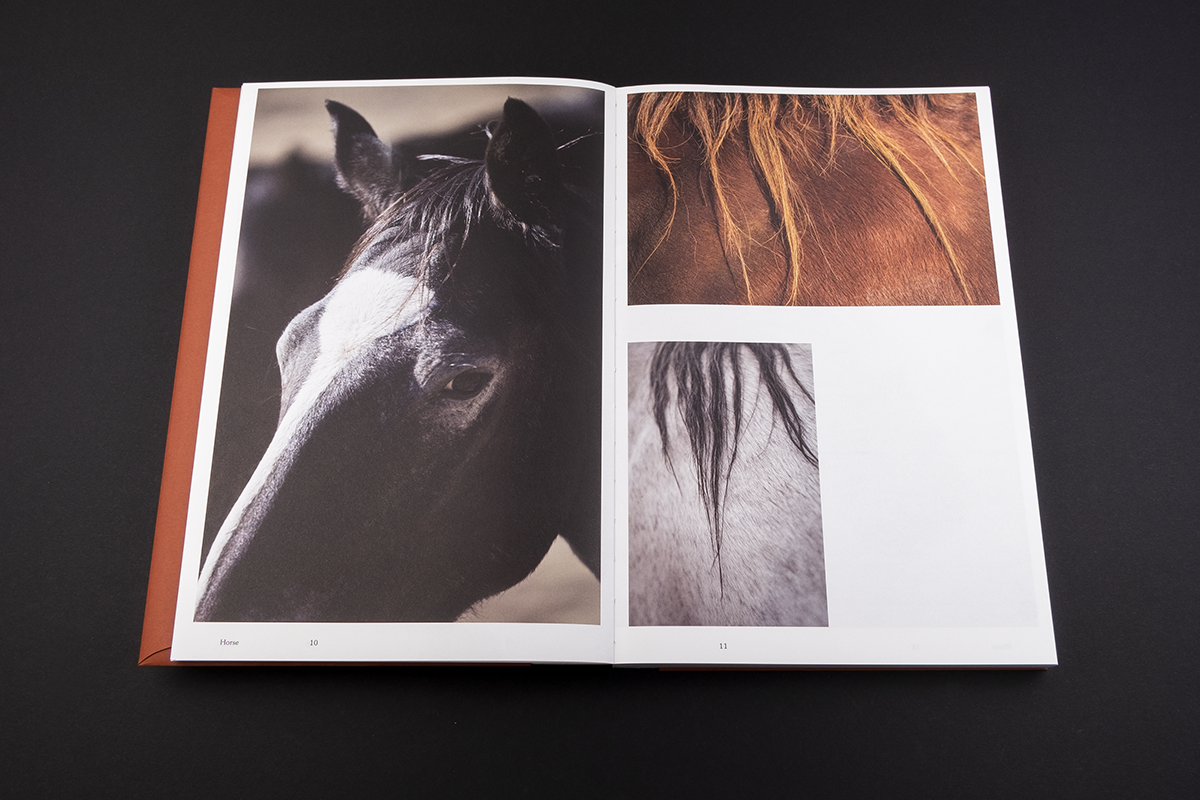
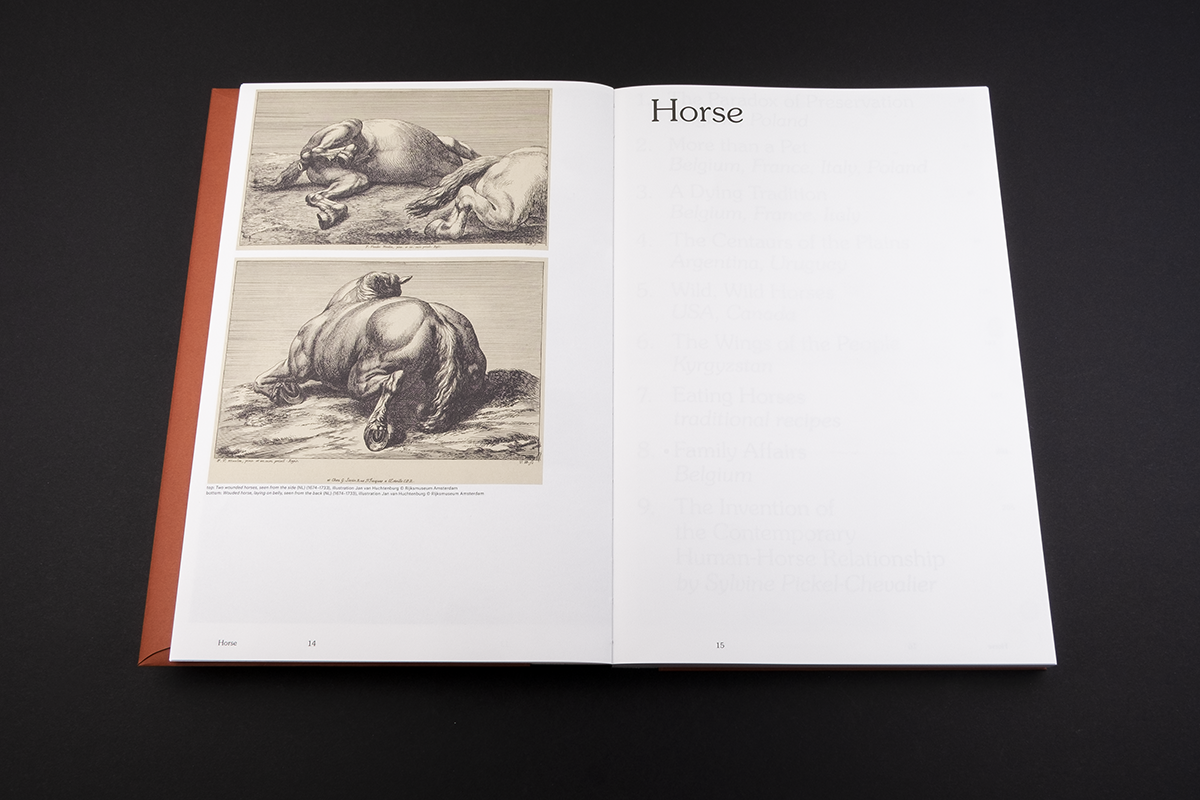
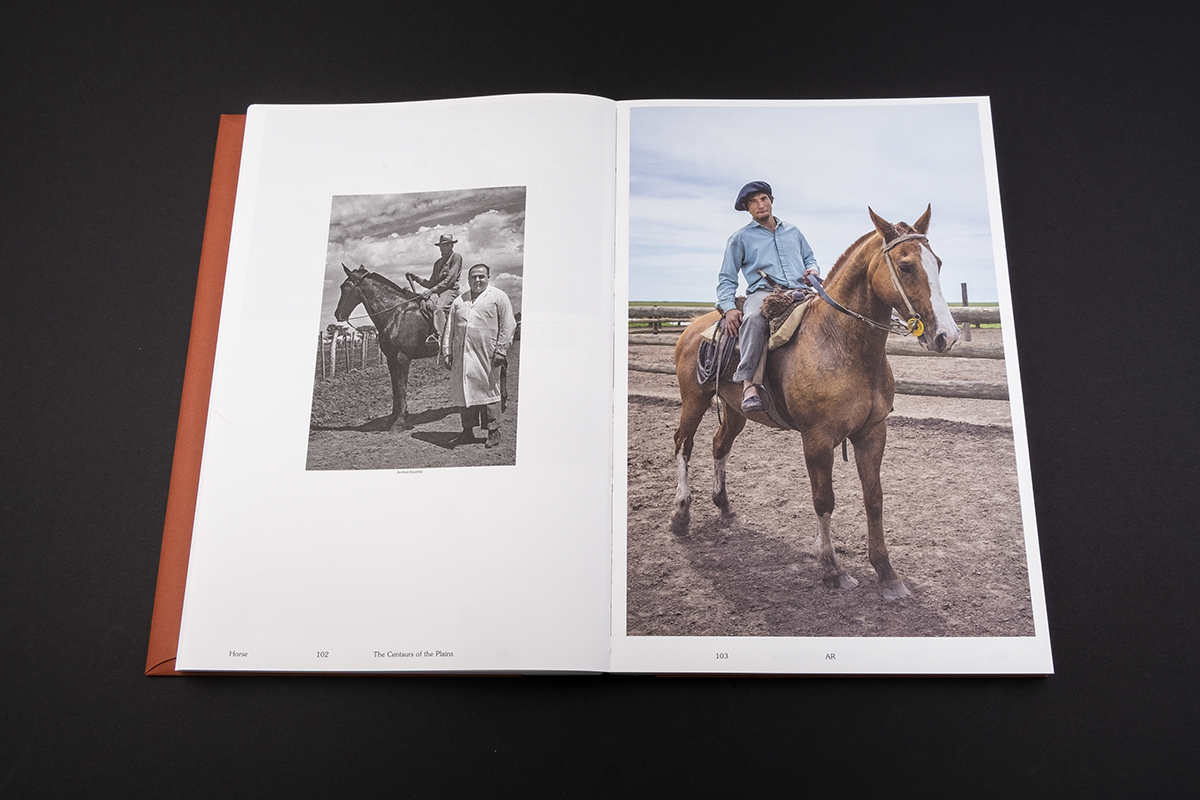
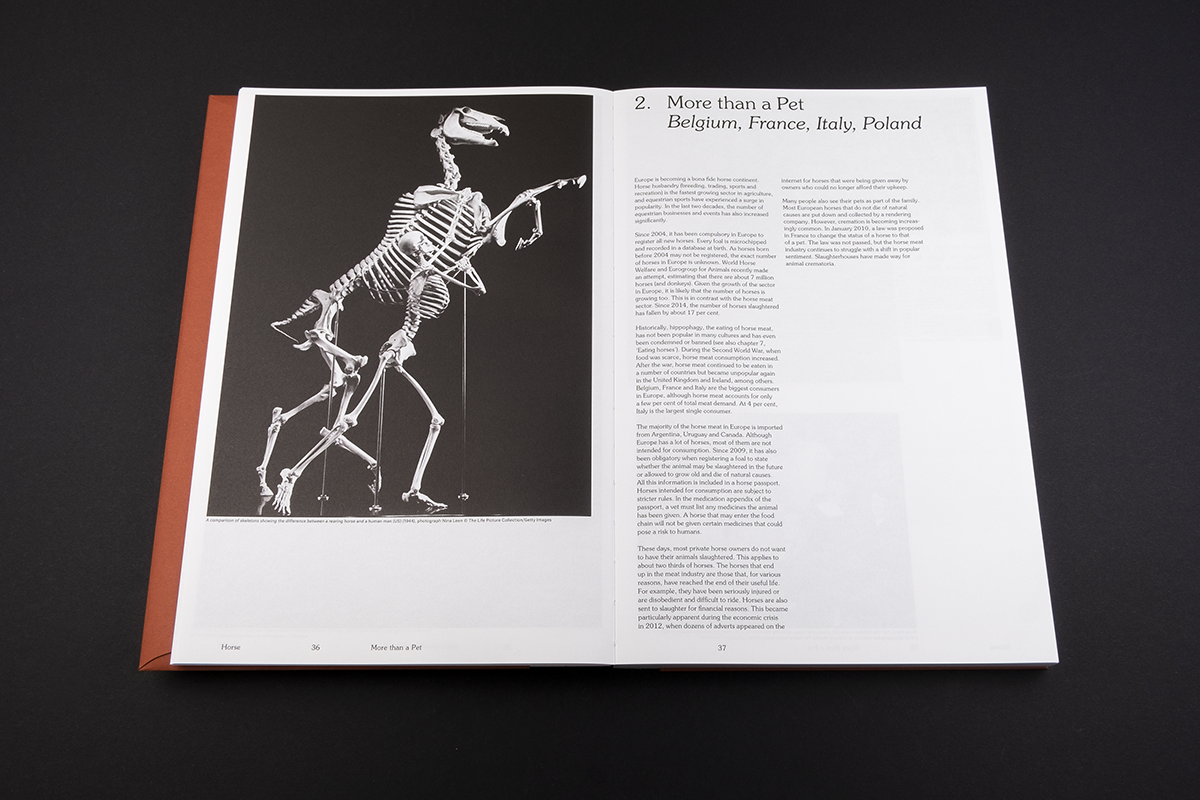
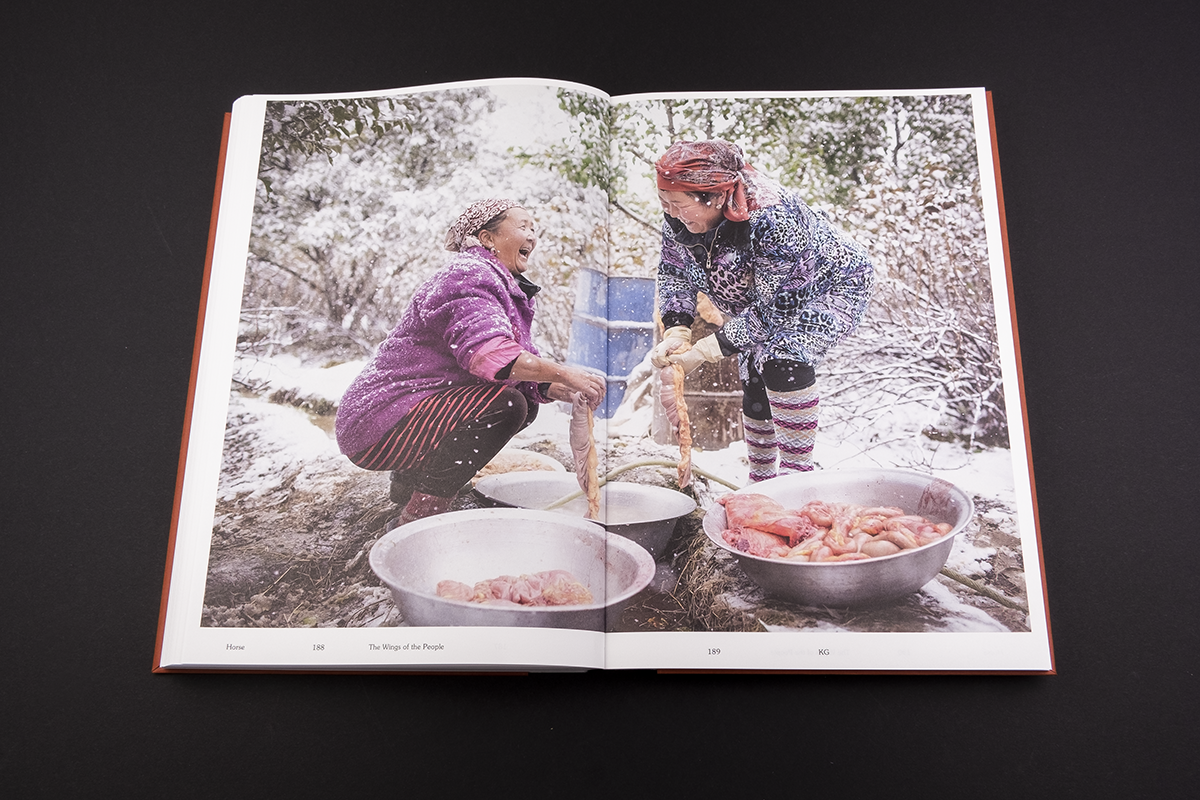
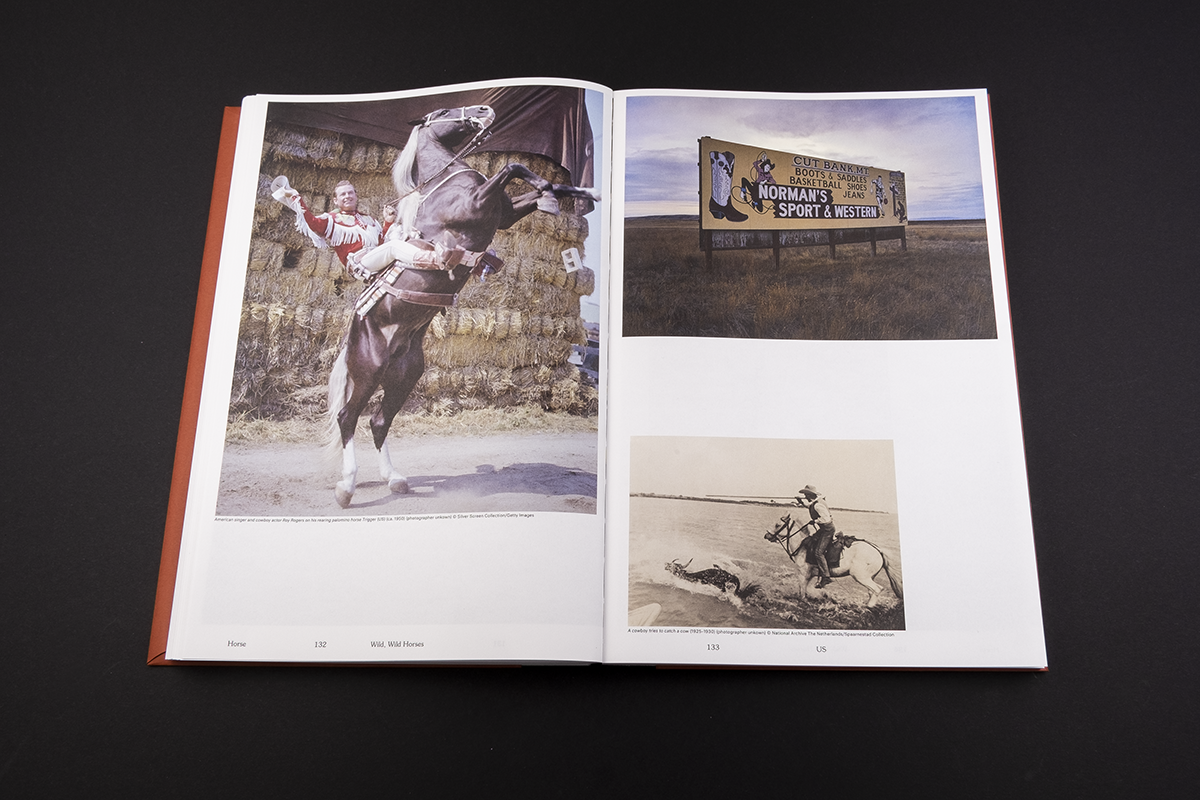



exhibitions
– Best Dutch Book Design (2021), Stedelijk Museum, Amsterdam, The Netherlands
– Horse (2021), Recyclaert, Brussels, Belgium
– Horse (2021), Galerie Objektief, Enschede, The Netherlands
– The Best Photography Books of the Year (2021) , PhotoEspaña Gallery, Madrid, Spain
– Horse (2021), MAS Antwerp, Belgium
– Julia Margaret Cameron Award (2019), FotoNostrum Gallery, Barcelona, Spain
– Documentary Photography from Flanders and The Netherlands (2019), De Markten, Brussels, Belgium
– Twens (2017), 30cc Kapel Romaanse Poort, Leuven, Belgium
![]()
![]()
![]()
![]()
